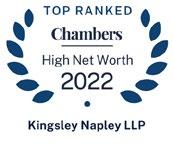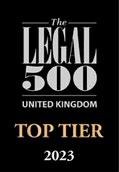














INTRODUCING THE NEXT GENERATION OF WEALTH HOLDERS
















INTRODUCING THE NEXT GENERATION OF WEALTH HOLDERS
“Our
generation, and that of our children, will face its share of crises, just like every generation in the past. When those calls come, will you be ready? The answer depends on how we
educate the next generation”.
Oliver DeMille
We are delighted to present Issue 12 of our Private Client Magazine, the Next Gen Wealth Edition. This issue will feature articles on how the Gen Z’ers navigate wealth succession. Our authors will provide you with an insight into why innovation, philanthropy, family values and influence matter. The articles will further highlight the different generational attitudes towards wealth. We would like to thank our community partners and contributors for sharing their outlook on the factors that drive the next generation.



Paul Barford
Founder / Managing Director
020 3398 8510
email Paul
Danushka De Alwis
Founder / Chief Operating Officer 020 3580 5891
email Danushka
Maddi Briggs
Strategic Partnership Senior Manager 020 3398 8545
email Maddi



Chris Leese Founder / Chief Commercial Officer 020 3398 8554
email Chris
James Baldwin-Webb Director, Private Client Partnerships 07739 311749
email James
Anne-Sophie Hofmann
Strategic Partnership Executive 020 3398 8547
email Anne-Sophie
Through our members’ focused community, both physical and digital, we assist in personal and firm wide growth. Working in close partnership with the industry rather than as a seller to it, we focus on delivering technical knowledge and practical insights. We are proud of our deep industry knowledge and the quality of work demonstrated in all our events and services.
Become a member of ThoughtLeaders4 Private Client and...
• Join a community of experts, referrers and peers
• Attend events in all formats
• Interact using our digital Knowledge Hub
• Learn and share expertise through the Community Magazine
• Grow your network and business
• Build relationships through a facilitated Membership directory
Úna Smith, Accuro
Sharon Sanders, Accuro
Elizabeth Gibbison, Irwin Mitchell
Sangita Manek, Irwin Mitchell
London & Capital
Brendan Udokoro, Howard Kennedy
Monika Byrska, Howard Kennedy
Emma Harris, Payne Hicks Beach
Benedict Jennings, Payne Hicks Beach
Stuart Lawson, Equiom
Nina Johnston, Equiom
Graham Marsh, Equiom
Diana Czugler, Peters & Peters
Kristina Volodeva, Rawlinson & Hunter
Samuel Cathro, Wilberforce Chambers
Diva Shah, Kingsley Napley
Henrietta Coldman, Sarasin & Partners
Tsitsi Mutendi, African Family Firms
Phil Radford, Saffery Trust
Clementine Dowley, Payne Hicks Beach
Rosie Sells, Payne Hicks Beach
Charlotte Murtagh, Zedra
Jacqueline Shek, Zedra
Francine Kouame, Zedra
Joanna Mulhern, Zedra
Wendy Sim, Zedra
Bhavnita

Accuro specialises in trust structures for high net worth individuals and families seeking to responsibly preserve wealth across generations.
Being wholly management and staff owned, Accuro has the freedom to pursue its mission with passion. The way we operate and who we partner with, can only be made possible by our independence.











Úna
To some, particularly the older generation, wealth can be defined as an abundance of valuable possessions or money, but wealth can mean very different things to each generation. As someone to whom a family have entrusted their wealth to, trustees need to be ever mindful of this, paying particular attention to the next generation.
Looking back, the once thought of traditional family has changed and may no longer be in the form of father, mother and children. Traditionally men were the head of the family, but today more impactful and powerful women are leading the way. Traditionally, discussions in connection with family wealth were carried out between the settlor, the trustee and their advisers, as family wealth would not usually have been discussed with the younger generations



grandparents in doing so, reflecting on the things that mattered most to the older generation, whilst staying true to their own values.
Discussing the story behind the origin of the wealth, setting out the history relating to the creation of the trust and any changes that have taken place over the time since establishment can be very enlightening for those involved, as the younger members of the family may be unfamiliar with the wealth structure.
As trustee, we believe that it can be helpful for the next generation to understand and appreciate the wealth which they will inherit from their parents or grandparents, and for which they will be responsible. The next generation can benefit from looking back at how this wealth was generated and understanding the family purpose. To know the thought process and reasons behind how the wealth was established and the forethought of their parents and
The key to these discussions is listening and being aware of the emotions which may come into play. The trustee’s communication skills are of paramount importance here, as negotiation may be necessary between family members as matters like the next great investment opportunity are brought to the table by the younger generation. As trustee we need to choose our words carefully during these discussions, but it is important to nudge and challenge also.
Having an independent party at the table can create an environment whereby complex issues and relationships can be raised and debated, which may not otherwise happen within certain family situations. The trustee can help the next generation to acknowledge the emotional attachment the family wealth/ business has with the first generation. By enabling the next generation to have a seat at the table, learn financial literacy and grow as part of a family unit, it encourages a stronger unified family to emerge, reducing possible conflicts and provide for future succession planning from one generation to the next.
How then do we look to bring in the next generation to these discussions and get their input and ideas for enhancing the family wealth for the future? Creating a family charter is one way of doing this, but what does creating a family charter or family governance framework look like in practice?
To successfully transition family wealth from one generation to another is not about ticking boxes and satisfying questionnaires, the real value is added by bringing all generations together to have clear, honest and respectful engagement. By creating a harmony between all generations with family goals and objectives, you set an unobstructed vision with clarity on decision making and priorities for the family members.
Family dynamics can make it challenging for the next generation to have their voices heard. A strong patriarch or matriarch who has created the family wealth may at times find it difficult to hear the next generations views and ideas. Whilst there is an acknowledgement the world has become more innovative and technology driven, the speed of communication, how we communicate, and the importance of ethical and sustainable investing can be a difficult
conversation for the older generation.
Future generations may wish to discuss wealth distribution for charitable purposes, which may not previously have been considered, bearing in mind people and planet, overcoming inequality, climate change and poverty and recycle wealth for repeat use.
Encouraging the next generation to explore their business ideas under the family’s guidance provides opportunities for the family to diversify and educate the younger generation through mentorship and experiential learning. The fresh perspective and ideas the next generation contribute can often lead to a positive and innovative change to the family. New viewpoints, diverse experiences can provide for creative problem solvers with the ability to address complex challenges in novel ways.
Technology fluency, adaptability and open communication are evolving values that can enrich family dynamics; however, each family is unique therefore all factors and family relationships need to be considered.
Communication between the different generations is crucial to ensure a smooth transition of wealth.
Intergenerational transition of wealth is not just the transfer of assets, it is the passing on of a legacy of values together with an understanding of philosophies and philanthropic endeavors. The next generation must prepare for their roles as the future stewards of the family wealth, acknowledging the responsibility that this brings, which can be daunting in an ever-changing economic environment. However, by engaging with professional advisors, guidance can be provided to navigate legal complexities, tax landscapes and ensure compliance with financial responsibilities.

There is magic in having a proper succession plan in place and disaster can unfold in the absence of it. Proper succession planning and accompanying estate planning is the process of protecting the things and people that matter to you; it includes considering the taxation and devolution of your assets but often more importantly, having a succession plan in place allows you to consider other key sentimental decisions so your wishes are carried out, rather than leaving things to chance. There has been an increase in people of all generations getting their house in order following the recent ‘triple whammy’ of threats with the fallout of the covid-19 pandemic, war on Ukraine, and with the UK teetering on the edge of recession. For several years now only approximately half of
the UK population have a Will in place.1 Promisingly, younger generations are leading the way when it comes to getting organised for the inevitableFarewill’s recent survey found that the amount of Gen Z’ers (born 1997 – 2012) making Wills doubled in 2022, and the number of Millennials (born 1981 – 1996) making them increased by 6% compared to 2021.2
Succession planning for younger and next generations becoming increasingly popular is timely; Baby Boomers are expected in the next 27 years to pass on the most substantial intergenerational transfer of wealth ever (of over £5.5trillion).3
Planning for the inevitable is an on fleek topic through shows like Succession offering a glimpse into the waves of difficulty and uncertainty grief can bring with it in the context of a deceased media mogul’s vast business empire. But something as simple as not expressing what you would like to happen to your body after your death can cause issue; Maeve in
Sex Education’s latest series was left to arrange her mother’s funeral without funds and with uncertainty around whether she wanted to be buried or cremated. With the increase in options including aquamation, and there could be more choices in the future so expressing your wishes is important. Younger generations are recognised as being conscious and expressive rather than repressive4 so this is likely to be contributing to the rise in Wills being made by them. Other reasons younger generations are viewing succession planning as popular could include the rise in disputes, changing nature of assets and liabilities, and the changing demographic and attitudes generally.

Perhaps propounded by the rising cost of living, claims against deceased’s’ estates are significantly rising. It is likely as younger generations grow and the average life expectancy increases, contested wills and estates will too which is another reason to get planning early.
What kind of disputes arise? Certain categories of applicant can attempt to establish claims for ‘reasonable financial provision’ from an estate of a deceased under the Inheritance (Provision for Family & Dependants) Act 1975. Potential applicants can include (among others): adult estranged children; current spouses or civil partner; ex-spouses or civil partners who have not subsequently re-married/ re-entered into a civil partnership.
Other disputes arise where it can be shown a Will was not valid for reasons such as the person making the Will:
Lacked capacity to make it; as younger generations live longer there will likely be more who are elderly and vulnerable and so disputes around capacity may increase;
Was coerced in to making it- as wealth grows via generations passing assets down, there may be an uplift in temptation for potential beneficiaries to become coercive. Undue influence is difficult to prove but a Court does have the power to declare a will invalid.
Did not execute it in accordance with the strict rules governing this procedure under section 9 of the Wills Act 1837. If it is found the will has not been properly executed it will not be valid so instructing a solicitor to prepare it is important as otherwise, an earlier Will or the rules of intestacy could apply.
Marriage and predatory marriage (where someone marries someone vulnerable to engineer financial gain) can be another source of dispute - the whole family in Channel 5’s latest hit drama The Inheritance were left in a state of disarray when their father had secretly remarried (which revokes a Will unless contrary intention is included) leaving his £600k+ fortune to his new spouse. As part of a robust succession plan, considering whether a Will is to stand in the face of marrying/ entering a civil partnership and considering a prenuptial or postnuptial agreement can be important. A solicitor can help you to fend off issues which could be encountered above and build protection in to your plan.
required in respect of passing crypto assets on, and regarding the taxation of these assets and storage of things like digital keys/ wallets in order to help your beneficiaries and executors.
Even if younger generations are still building wealth without tangible assets to leave, as part of holistic succession planning they can consider among other things, how their digital footprint including social media accounts are managed after death (59% of all adults Worldwide have social media 6), provide for the maintenance of pets, guardianship of children, etc.
is changing and tech is making generations richer than ever; the increase in the use of artificial intelligence will advance this further.
Liabilities are also changing as generations grow older it is more possible they will live in increasingly expensive assisted living facilities. While future generations await their inheritance they are taking out more debt during the cost of living crisis than their older counterparts 7. Thinking about the people who carry out your wishes in your Will (your executors) is therefore important particularly if the nature of your estate is complex.
The nature of assets being passed down are changing as is the proposition behind them with a greater focus on ethical investments, and priorities of future generations changing.
The FCA’s recent report showed the number of UK adults holding cryptoassets has over doubled since 2021. 5 Specialist advice is often
Future generations’ family structures and demographics are changing so
4
leaving things to chance can prove more disastrous than ever before as the rules in place which govern how a person’s estate devolves in the absence of a Will (known as the rules of intestacy) remain outdated. Gone are the days of families only having 2.4 children, there is now a rise in blended families and same sex families8, and divorce rates continue to upsurge.9
The rules of intestacy are starting to keep up a little; for deaths after 26 July 2023 for those who are married or in a civil partnership, the first £322,000 of assets and the deceased’s personal possessions pass to a surviving spouse (increased from £270,000), the remaining assets are split between the spouse/ civil partner and any children. ‘Common law spouses’ (there is no legal definition of these) still remain unaccounted for under the rules of intestacy.
Inheritance Tax (IHT) allowances still favour those who are married or are in a civil partnership and those with lineal descendants. Unless any other reliefs or exemptions apply for IHT purposes, married couples/ civil partners with children can leave up to £1million free of IHT after the second death, for those who are not married or in a civil partnership/ without children, this is capped at £325,000. As future generations forge their own important connections, succession planning is becoming ever more vital (although legal definition of child has extended to include illegitimate and adopted children) in the face of the law often lagging behind.
Many terms surrounding sex and gender are rapidly changing an expanding to accommodate the expanse of identities embraced by all generations and the law will no doubt
change to accommodate further terms in the future (the term non-binary still does not have legal recognition in the UK10 but it is possible this will change). How we talk about and approach succession planning and estate planning continues to change and terminology, precise drafting and inclusive language is vitally important in documents to ensure there is no confusion.
There are still so many myths around the rules of intestacy with the main ones being around which loved ones could inherit under these rules and as the family set up has changed throughout the generations this is increasingly topical.
Succession planning can save your estate an unpopular11 tax when the times comes – often IHT is an optional tax as there are things you can do to save your estate this 40% charge. Thanks to the likes of Mitch the Tax Man on Tik Tok12 and Martin Lewis’ regular updates on ‘money saving expert’, people are understanding and discussing these potential tax savings, the reliefs and allowances an estate has for IHT purposes more. Attitudes towards planning will no doubt continue to change as the economic landscape continues to be uncertain and the way assets are taxed after death could also soon change despite the Government raking in over £15 billion a year from receipts13
gifting, and protecting assets through setting up Trusts in a Will or in lifetime. A good solicitor will encourage you to consider your objectives and will align with these in helping you come up with a robust succession plan.
You can change a Will at any time provided you have capacity to do so and starting early in making Wills is important so you have a record of your wishes, too.
Each of us had a one in 400 trillion chance of being here; each life is significant and succession planning is important, no matter whether wealth is actual or sentimental. The next gens have more assets in the ether, an appreciation of tech and how things are changing through the rise in the use of artificial intelligence which will bring with it both complications and ease in respect of succession planning and are part of a movement away from strict ‘norms’ and defining terms previously prescribed. It is refreshing to see that younger generations are hopefully understanding that for the cost of the latest pair of Balenciaga’s they could ensure their legacy lasts; they perhaps understand the importance of leaving a lasting impression after life than their predecessors could after all, there is no success without successors.
Houdini left a secret code in his Will to be contacted in the afterlife, Shakespeare included a wish that his wife received his ‘second best bed’, reportedly Kim Kardashian’s written in to her Will she’d like to ensure her hair and makeup are perfect when the time comes. As part of succession planning, you can also discuss things like lifetime



Imagine you no longer have to work. How would you spend your weekdays?
I don’t think I could not work! Helping others find their voice and fight their battles has been my life’s work both in my career and in my personal life and I would like to continue doing that. It therefore follows that I would have to give another career a shot. I think I would retrain as a psychologist. I am fascinated about the layers that make up an individual human being and the filters of perception that they acquire through their life experience that makes up who they are. We are often our own worst enemies and create our own internal limitations to what we really want to do. We need to remember to tell that negative chatterbox that always sits on our shoulder (and tells us why we can’t do things) to just be quiet!
What do you see as the most important thing about your job?
For me, it’s always about the win. That can be a win at trial, or a well negotiated settlement through correspondence or at mediation and in some cases, stopping my client from making the expensive mistakes of pursuing claims that have no merit. I have learnt through experience, particularly with contentious probate claims, that there are often underlying and unrelated grievances behind family disputes and once I get to the heart of that, I can properly strategise and advance a claim to meet my client’s objective. In my experience, it’s rarely about “the claim” and more often about other, deeper, unrelated issues arising from the parties’ historical relationship, particularly amongst families. Taking a holistic view of the claim is therefore all important if I am going to find a good solution to the problem. I want my clients to be happy with whatever outcome I achieve for them and achieving that for them is the most rewarding and important part of my role.
What motivates you most about your work?
That I am making a difference in the lives of other people, that the work I do
could change someone’s entire life for the better and the responsibility that comes with this.
What is one work related goal you would like to achieve in the next five years?
Instead of focusing on one goal, I tend to focus on being a better version of myself every day and try to keep my mind open to learning new skills every day.
What has been the best piece of advice you have been given in your career?
“Do what you love, and you will never work a day in your life” – I think if you make your passion your job, you will inevitably excel in whatever you do.
What is the most significant trend in your practice today?
The focus of legal firms is now less on investing into physical space and more into technology and its digital capabilities that can help lawyers to do their jobs better. AI will also play a big part in how we do our job, and we will have to embrace these changes if we are to keep growing. I am also seeing a growing trend and investment in balancing work life and mental health, and it will be interesting to see how this can be balanced in the legal world.
Who has been your biggest role model in the industry?
I would not say that there is one individual that has inspired me. I have come across some wonderfully strong women throughout my career, each inspiring me in different ways. I love seeing women shattering historical glass ceilings in all walks of life but anyone who rises against adversity and hardship to progress and better their lives is a role model for me.
What is one important skill that you think everyone should have?
Communication. It is the key to everything. I recently read a book by Thomas Erikson and there is a key phrase that he uses in the first chapter of his book which has stuck in my mind – “communication is on the listener’s terms” – I had never thought about it this way. We focus so much
on blaming the person we are speaking with, when they cannot understand the point we are making. We need to focus on tailoring our language to the way they speak and process information so that they can understand our message.
What cause are you passionate about?
Lots of things! I have two opinionated teenage daughters that keep me on my feet! I’m also a real foodie and have co-authored a cookbook (Sweet Chilli Friday) which I am very proud of. Travel and reading follow a close joint third. After that, I keep pushing myself to try new things and step out of my comfort zone. I also try and give back to the community and am fortunate enough to have been appointed as the Legal Trustee for PACT (Parents and Children Together) which is a charity. Where has been your favorite holiday destination and why?
Different places fulfil different needs. Maldives is absolute paradise. You can open a travel brochure and the best pictures are always of the Maldives. Aside from being the most scenic place I have ever been to, it has a serene calm to it, and helps close the fifty-eight browser tabs always open in my head. On the other hand, Disney World is just magic, and makes you feel like a child all over again, whatever your age.
Dead or alive, which famous person would you most like to have dinner with, and why?
Princess Diana would be my choice of dinner guest. She was such a contradiction of things. Beautiful but unaware of it, soft in her manner yet strong enough to stand up against the establishment, understated in her humanitarian efforts but impactful in the lives of other people, originally a member of the Royal family but always being mother first….... she passed on the day I qualified and that was the first time I had ever felt impacted by the passing of someone I did not know.
WEALTHY
Authored by London & Capital
One of the most noticeable aspects of the cost of living crisis is how widespread it has become. Nobody seems to be immune, not even the wealthy. Even if you have accumulated a comfortable amount of wealth, you still need to buy groceries, take flights, pay bills and visit restaurants. The sharp intake of breath that comes with price rises can be experienced by anyone. Feeling the pinch appears to be universal.
In a world where the cost of everything seems to be rising, it is important to have a clear picture of your wealth and plan your financial future accordingly. The cost of school fees and property may have shifted, or if financial assumptions from the past have become redundant, taking a fresh look at your wealth can guard against the unexpected.
Cash flow modelling and consolidated reporting are two useful tools for anyone looking to assess their wealth and plan
out their financial future. Cash flow models examine your assets and debt along with income and expenditure. Projections can then be created on your future finances.
Consolidated reporting provides a full picture of someone’s wealth by creating a financial statement that brings everything together. This approach gives you an umbrella view of your
financial situation and makes managing your assets simpler.
Taking the temperature of your financial situation could prompt the need to pivot in a variety of different areas. A wellmanaged investment portfolio should be
robust under all economic conditions, but it may be worth discussing with your wealth manager whether you are still comfortable with your holdings. You may feel the need to adopt a lower level of risk or even be keen to explore opportunities presented by the current economic conditions. You may feel that now is the time to expand your investment portfolio or reduce your holdings and free up cash. Whatever the conclusion, communicating your priorities to your adviser means you can adjust your investments to suit your needs.
Currency holdings represent a key part of anyone’s finances. Volatile interest rates can affect currency valuations, so it is prudent to consider the diversification of your cash holdings. Concentrating your funds in one currency may leave you exposed to sudden swings in exchange rates and the interest earning potential of your currency could be higher if you choose
to diversify.
Rising costs in some areas are likely to affect high-net-worth individuals (HNWIs) more specifically. The rising cost of private schooling in the United Kingdom, for example, has attracted a lot of attention as some parents are starting to feel the strain when paying fees. Families paying fees for multiple children will likely have seen a significant rise in costs. The future price of private schooling in the UK is also uncertain with the resurgent Labour Party committing to adding VAT at 20% to fees and removing a discount on business rates.
If the Labour Party wins the next general election, the moves could drastically increase the cost of private education. Preparing for the possibility of price rises early means you can build the adjusted cost into your financial plan.
HNWIs could also be feeling their budgets being squeezed when it comes to expenses such as premium air travel, hotels and restaurants. The cost of flying has gone up noticeably across the board following a fallow period for airlines during the Covid-19 pandemic and more price rises are expected. It is also common to see higher prices for accommodation and eating out. As a result, the cost of global mobility for HNWIs is rising. Taken individually, rising costs like these may not seem like a concern, but once considered collectively they have the potential to impact someone’s wealth significantly.














Authored by Brendan Udokoro (Associate) - Howard Kennedy
The great wealth transfer to the next generation (millennials) has undoubtedly become a hotly discussed and debated issue amongst private client advisers. Keen interest and debate around the intergenerational transfer of wealth and lifetime planning has extended to the wider public and popular culture thanks to the gripping (and brilliant) drama series “Succession”. Consequently, the question of intergenerational legacy, succession planning, and the resulting opportunities and challenges for those at its centre (and their advisers), has moved into the limelight.
‘Baby boomer’, ‘millennial’ and ‘Gen Z’ are labels that often appear to be abstract or superficial marketing buzzwords brimming with clichés and with seemingly very little practical application.
However, having an understanding of some generational differences (and similarities) between these quite distinct groups provides useful insight into the opportunities and challenges of intergenerational wealth transfer and how they can be successfully managed to avoid potential future disputes.
What’s so great about the coming wealth transfer?
To understand why the transfer of wealth to the next generation is so hotly discussed, it is important to consider what is so unique about this intergenerational wealth transfer, compared with those that have come previously.
According to the Office for National Statistics, 82% of household wealth in the UK is held by people over the age of 45. The vast majority of that wealth is equity held in property. During the next decade, in the UK alone, an estimated £1.2 trillion of wealth will transfer to millennials and Gen Z from baby boomers, as the latter group disposes of that significant wealth through lifetime gifting and by inheritance on death. The next 10 to 30 years will see millennials and Gen Z inherit a greater proportion of wealth than any previous generation has inherited.
This substantial intergenerational transfer of wealth is likely to dramatically transform the financial and estate planning industries, particularly
as advisers compete for a new client base. The challenge is how we, as professional advisers, can attract and retain clients and manage their wealth.
As one would expect, short- and longterm financial objectives, attitudes towards risk and considerations about the impact of investment decisions differ between each generation. Millennials and the generation below them, Gen Z, are generally characterised as being more concerned than any previous generation about social justice, the environment, corporate governance, and the redistribution of wealth. It is not unexpected that each generation will, in general, be more liberal in their youth and progressively become more conservative as they age. However, a recent analysis by The Financial Times, suggests millennials are bucking that age-old trend and are the first generation not becoming more conservative as they age.
Millennials are therefore likely to have a greater and more sustained interest in socially responsible investing, i.e., an investment strategy that aims to generate a specific benefit to society or the environment, as well as financial return, than any other previous generation.





challenges of the great wealth transfer, but also offers new and exciting opportunities.
Evolving client objectives: The next generation have moved away, and are likely to continue to move away, from conventional approaches to investment. Increasingly, younger generations are embracing non-traditional investment strategies and socially responsible investing. A lack of engagement from advisers with millennials who will be inheriting wealth will be a missed opportunity. However, to engage with millennials, advisers will need to become knowledgeable and skilled in new (and often riskier) areas of investment to ensure they can strategically advise their clients. Advisers who can engage proactively and creatively with changing client objectives will be well positioned to develop and maintain long-term client relationships with the next generation.
as early as possible between members of each generation. Conversations about succession planning in families will always be a sensitive issue and one that many family members will want to avoid. Advisers should actively encourage, support, and facilitate family conversations about succession planning with care and sensitivity. Waiting until a death runs the risk of lengthy and costly family litigation.
The great wealth transfer to the next generation will have a significant impact on intergenerational wealth planning for legal and financial advisers, and the families that they advise. It poses potentially significant challenges for advisers, particularly those advisers who fail to plan, strategise, and adapt to the shift in the next generation’s worldview. It also represents a fascinating opportunity for astute, future-focused advisers to establish new, exciting, long-term professional relationships with members of the next generation.


The great wealth transfer is, however, emerging at a time characterised by prolonged and complex economic uncertainty, global political insecurity, an aging population and increased concerns over environmental sustainability and the climate crisis.
This perfect storm of external challenges only serves to heighten the
Client retention: The era of the ‘trusted adviser’ may be over. According to CapGemini’s Wealth Management Top Trends Report 2022, baby boomers are more likely to implicitly trust a financial adviser as their sole source of investment advice. However, millennials are more likely to take a broad range of professional advice and undertake their own research before making investment decisions. Further, it is expected that at least 80% of millennials will seek a new financial adviser after inheriting their parents’ wealth. Consequently, to avoid the risk of losing the beneficiaries of their existing clients as future clients, advisers should, as early as possible, plan and prepare client engagement strategies to convince millennials of their value and expertise as trusted advisers with the aim of cultivating a relationship that will develop over time.
Intergenerational conflict: Stark intergenerational differences within a family about money, politics and/ or social issues can develop into conflict concerning succession planning and the future ownership and management of family wealth. To manage family conflict, it is always preferable for clear and open conversations to take place


We are a London based law firm specialising in providing straightforward advice to entrepreneurial businesses and individuals on domestic and international matters, whatever the challenges they face.
We simplify what others complicate, giving useful advice in language you understand. We look to complete projects and deals quickly and efficiently so that you don’t miss out on important opportunities.
Imagine you no longer have to work. How would you spend your weekdays?
After a few days of hurkledurkling, I would most certainly come up with an extensive travel plan, including many hikes and mountain ascents. I would also fill my days with really nice food!
What do you see as the most important thing about your job?
Helping people get through some of the most difficult situations in their personal life with the least possible negative impact on their family relationships, self-respect and reputation.
What motivates you most about your work?
The constant intellectual challenge brought on by the wide variety of work we come across in the trusts and estates disputes world.
What is one work related goal you would like to achieve in the next five years?
To maintain the same level of energy, enthusiasm and feeling of accomplishment I have managed to achieve thus far.

What has been the best piece of advice you have been given in your career?
You know you’re a good litigator when you can row back from nearly any unwise decision or judgment call you have made. There is, however, one mistake you will be unable to redeem yourself from, and that is to undermine or disrespect your opponent.
What is the most significant trend in your practice today?
Specialization, which is great, as it means that I tend to work with really inspirational people truly at the top of their game. I am a bit worried however about the impact this trend has on the next generation of lawyers we are training. I fear we make them specialise too early. You cannot be a good private client adviser if you lack a holistic view of the problem your client is faced with.
Who has been your biggest role model in the industry?
My dad, who passed away long before I decided to qualify. His professional choices have meant I really, really did not want to be a lawyer and now make me the adviser I am.
What is one important skill that you think everyone should have?
The ability to truly listen, not just hear.
What cause are you passionate about?
Keeping fellow female lawyers in the profession.
Where has been your favorite holiday destination and why?
Peru – a culturally rich country with one of the best mountains I have ever got to climb; variety and quality of cuisine I do not think many suspect it to have; and the most humble and interesting people.
Dead or alive, which famous person would you most like to have dinner with, and why?
Junko Tabei. I would love to hear more about how she got into climbing (despite the odds) and became the first woman ascending all Seven Summits whilst raising a family.
One of the challenges advisors continue to face is how to interest and involve the next generations with succession planning and managing family wealth. The Boomer generation, which largely holds the family wealth, is slowly transferring and making plans for the transition of it to the next generations (Millennials, Generation Z and the microgeneration who sit on the cusp of the two cohorts, the Zennials).
If the media is to be believed, the gap in ideologies between the Boomers and the Zennials (we include within this term Millennials and Generation Z but will use ‘Zennials’ as shorthand for the three generations within this article) is vast and unforgiving.
Boomers have the reputation of being hard-working and driven whilst the Zennials are reputed to focus more on work-life balance and being more interested in demanding social and environmental justice from the powers that be. The Zennials also grew up within the Digital Revolution and embrace technology and the changes it brings to the world; they want to be a part of it and use all of the latest technology to its full advantage. With
these technological advances, it has been suggested that attention span is waning so the professionals will have to adapt to perhaps shorter, more succinct snippets, rather than lengthy tomes.
Any sensible advisor will tell you, a key part of succession planning on behalf of your clients is bringing the next generations into the running of the family wealth and garnering their interest and attention at the same time. So, how can this be done when the generations are sometimes poles apart?
Most families with advisors will have meetings with their panel of advisors on a fairly regular basis and the format of these meeting could perhaps be tweaked so that they may appeal more to the next generations. Perhaps the meetings could include a remote element for those who do not want to, or cannot easily travel to the meeting location (the insurgence of Zoom and Teams makes this now very simple to arrange);
A way of working together and sharing documents online to allow collaboration should be explored – if the system chosen allowed all users to annotate and comment on documents (particularly meeting agendas and documents setting out future plans) could encourage the Zennials to look at the paperwork in small segments prior to a meeting, rather than find a number of hours to go through a large pack of information in one sitting;
Philanthropic ideas could be added to the agenda – discussion with the next generations about their wishes and thoughts for good use of the family wealth could buy their engagement but also allow the family’s wealth to do some good in the world.
One of the key considerations in any change of generation is what the next generation value and how they see their family wealth. We are moving away from essentially a post-WW2 outlook which had at its heart the longterm preservation and building up of family wealth to ensure that multiple generations could be provided for. We are now approaching the time where those events are buried deep in the collective memory, and the dangers are perhaps less immediate and concerning.
Nevertheless, the major economic events in the last decade or so and, not least, Covid-19 and the global response, have shaped the way the next generation view collective wealth and there is still a need to protect and plan ahead. After many years of almost constant growth, there is again the knowledge that everything is cyclical and things which have been built up can come crashing down very quickly. It is, therefore, absolutely the right time to engage the next generation in key planning strategies and ensuring that these are tailored to their needs. Often these will be inherited structures so there is always the question of how to adapt these going forward.
Family Investment Companies (FICs) have been quite popular due to their broadly lower tax rates than trusts. However, one of the disadvantages of a FIC is the need constantly to bring in new family members or to consider adapting regularly. There is arguably more involvement needed by the directors who are usually family members than being able to delegate to professional
trustees, for example. The increase in Corporation Tax rates as well have meant that FICs are probably not the current favoured option for the next generation.
Trusts are often the structures which the next generation will take over. The key consideration for many families is how involved they want to be in the day-today. There is an assumption that the answer is not much, though there will be some who are engaged and do see themselves coming in as the head of the family. Trusts are flexible in their control as trustees outside of the family (often professional trustee companies) can be appointed, who are able to act on their discretion in how to manage assets and preserve wealth going forward. These are time-honoured vehicles to ensure flexibility and continued asset protection. Trusts have undoubtedly become less popular, but as a vehicle that affords protection without the need to be hands-on in the day-to-day running, we maintain they are unbeatable, and believe they will maintain their appeal for a generation that is able to dip in and out and use technology to review things in a matter of minutes on the move. Creative use of technology by law firms, professional trustees, accountants, and investment managers can make this very simple and adaptable to the next generation. There is also a demand for trustees to consider alternative assets, social and environmental investments, and philanthropy. The delegation to investment managers with a family mission brief ensures that these considerations can be taken up and become a key factor in the make-up of trust assets. Considerations such as philanthropy and ESG investing are important to the next generation and many investment houses are prioritising and highlighting these elements in their reports.
Alongside the use of trusts, there has reportedly been a good rise in the number of Zennials making Wills. The importance of making a Will cannot be exaggerated and professional advisers need to bring these important issues to the table when engaging the next generations. It is increasingly
important with a departure from the traditional family structure and often with the law not able to adapt in the same way. Wills become a flexible vehicle to ensure protection which cannot be afforded under the rules of intestacy.
For those with more traditional family structures, other important planning tools are pre- and post-nuptials which are very important when we see so much divorce in an increasingly litigious environment. The next generations may need to be reminded of the risk here and the need to protect their family’s wealth, where possible.
Although generations differ in their outlook, it would be wrong to think that the same considerations are not still prevalent, and it is up to professional advisers to ensure that they adapt to engage the new custodians. The same historic considerations will be facing the next generations though perhaps in a different guise. Often, the next generation will, as their parents did for them, want to ensure that the family wealth can be protected and passed down and the mechanisms available to them are not vastly different from those which have gone before.
The challenges faced in managing family structures are always everancient, ever-new, and we should be looking to encourage and bring the thinking and values of the next generation into the mix.
“They are a fantastic group of lawyers. They provide excellent advice to clients, and they have strong expertise in a range of areas. They really invest in their clients; it’s a real pleasure dealing with them.”
Founded in 1770 our offices have remained at 10 New Square, Lincoln’s Inn, one of London’s finest squares and the seat of English law.
Payne Hicks Beach LLP is a firm of solicitors who take pride in building strong client relationships based on trust, integrity and the vision to succeed. At the heart of what we do is a deeply engaged connection with our clients – their lives, their businesses, their interests. The firm’s long-standing reputation has been built on our family and private client work. Our authority in these fields and subsequent successes in litigation, immigration, property and commercial expertise, means we are regarded as one of the very best of the small number of firms in the UK that undertake this work at the highest level for clients across the world.
FAMILY, CHILDREN, DIVORCE & SURROGACY
LITIGATION, ARBITRATION & DISPUTE
RESOLUTION
PRIVATE CLIENT SERVICES
PRIVACY & MEDIA
EMPLOYMENT
CORPORATE
PROPERTY
PROPERTY DISPUTES
PROBATE, ESTATE & TRUST
ADMINISTRATION
SPORTS DISPUTES
CITIZENSHIP & IMMIGRATION
PUBLIC LAW, INQUESTS & INQUIRIES
OFFSHORE TRUSTS, RESIDENCE & DOMICILE
WHITE COLLAR CRIME & REGULATORY
UK TAX & ESTATE PLANNING
ART & CULTURAL PROPERTY
TRUST & PROBATE DISPUTES
EDUCATION
For further information please contact: Robert Brodrick, Partner, Private Client rbrodrick@phb.co.uk
Richard Manyon, Partner, Contentious Trusts, rmanyon@phb.co.uk
Rebecca Cockcroft , Partner, Family, rcockcroft@phb.co.uk
PHB.CO.UK














Our private wealth expertise is reinforced by our in-depth knowledge and strong roots.





We enable wealthy individuals and families to live their best lives, providing our sophisticated clientele with professional expertise in multi-jurisdictional wealth and asset protection, succession planning and wealth transfer solutions.


At Equiom, our international network of expert advisors combine in-depth knowledge, proactivity and a passion for progress to guide our clients forward, going beyond exceptional service to develop long-term trust and relationships.


Our range of private wealth services are tailored to our clients’ needs by our dedicated advisors to support, protect and grow the rewards of their hard work.





The wealth management industry is evolving due to the emergence of ‘Next Gen’ clients, who will inherit an estimated $70 trillion in the next 25 years. In this article, we explore insights from three experienced Equiom Directors in the Crown Dependencies - Stuart Lawson from Guernsey, Nina Johnston from Isle of Man, and Graham Marsh from Jersey - and delve into how wealth managers like Equiom, are adapting to cater to the unique needs of these ‘Next Gen’ clients.
Stuart Lawson, Interim Managing Director of Guernsey, acknowledges that the Crown Dependencies have a long history of providing comprehensive wealth management services and were pioneers in introducing fiduciary regulations.
However, it is essential to understand why ‘Next Gen’ clients are significant for the future of the industry.
Nina Johnston, Managing Director of Equiom Isle of Man, emphasises the importance of these clients, who are reshaping the industry with their focus on sustainability, technology, and education. They seek transparency, ethical standards, and modern technology integration. Their preferences are significantly different from the traditional client base, and wealth managers must adapt to cater to these digital natives.
Failing to do so could lead to the loss of a substantial client base as ‘Next Gen’ clients accumulate wealth over time, in addition to the inherited wealth.
Graham Marsh, Director of Private Wealth in Jersey, highlights that ‘Next Gen’ clients are fundamental to the development of the wealth management industry because they are pushing the boundaries of conventional investment methods. These clients are often highly educated and carry a sense of responsibility to pass on a legacy to future generations for a
‘better’ world. Their focus on sustainable investments, global connectivity, and technology, including the development of AI, plays a vital role in shaping the industry.
With such a substantial wealth transfer expected in the coming years, the preferences, and behaviours of these ‘Next Gen’ clients are set to evolve.
Nina provides an insight into what wealth managers can expect from these clients:
1
2
Transparency: ‘Next Gen’ clients seek transparency in the succession process, requiring clear communication on benefit criteria and timelines.
Ethical standards: ‘Next Gen’ clients prioritise ethical standards that align with their values, which encompass environmental and charitable
3
4
5
Development opportunities: They value ongoing learning and seek mentorship, training, and skillbuilding.
Inclusivity: A diverse and inclusive workplace is a priority.
Technology: They expect modern fintech solutions to be integrated into working practices, with a reliance on personal devices to access up-to-date, secure information tailored to their individual needs.
6
7
8
Succession diversity: Business owners among the ‘Next Gen’ want succession planning to consider a broader range of candidates, not just those with seniority.
Empowerment: A leadership style that empowers employees and encourages innovation ahead of strict hierarchy.
Work/Life balance: ‘Next Gen’ clients seek out partners that prioritise this balance.
In summary, ‘Next Gen’ clients look for more flexible, open, and inclusive behaviours that align with their values and aspirations.
beliefs of the ‘Next Gen’. For example, Equiom has several large trust structures where wealth is passing to the next generation and are navigating numerous complexities when it comes to investment strategies, risk profiling, loss of capacity concerns and, sadly also family disputes – in these cases communication and education is paramount to managing these often-emotional situations.
Graham emphasises the need for advisors to align with ‘Next Gen’ clients’ beliefs and vision. Advisors must stay relevant in the face of technological and geographical changes to remain valuable.
Advisors must adapt to connect with ‘Next Gen’ clients on topics like ESG, cryptocurrencies, and new technologies. Nina notes that they should be wellinformed about emerging technologies and provide informed advice.
Inheriting wealth is not without its challenges, and ‘Next Gen’ heirs face various responsibilities and concerns.
Nina highlights some of the key ones:
1 The burden of financial responsibility: ‘Next Gen’ heirs may feel daunted by the responsibility of managing significant wealth. Trusting experienced wealth managers to guide them through the transition is crucial.
Retaining ‘Next Gen’ clients is a challenge, as only 13% retain their parent’s advisors after inheriting. Stuart highlights that the Crown Dependencies have a deep pool of experience and active professional networks that encourage ongoing development. This experience, combined with fresh approaches, is helping Equiom to build lasting relationships.
Nina also emphasises the importance of early engagement and transparency. By involving ‘Next Gen’ clients in the succession journey as it unfolds, wealth managers can build trust. However, advisors must avoid falling into the trap of rigidly sticking to old methods and instead listen to the changing objectives and
2 Tax and legal issues: The complexities of multi-generational, cross-border, blended families can be significant. At Equiom we have a broad professional network that can streamline advice.
3
4
Social impact: Balancing a desire to make a positive impact on society while respecting the family’s legacy is a common concern. Wealth managers can provide education on wealth planning and philanthropy.
Sustainability: Sustainability is a top priority for many clients, and we find that by guiding ‘Next Gen’ through the process and introducing the concept of subtle strategic changes, helps to manage the transition respectfully.
Advisors play a vital role in addressing these concerns and responsibilities, offering both financial and emotional support to clients.
Graham emphasises that advisors must also understand the risks and opportunities presented by evolving technologies and provide valuable advice on the potential consequences.
Advisors should act as confidants, offering relevant and respected guidance.
Stuart notes that ‘Next Gen’ clients will expect real-time data that provides clear insights into risk, performance, and various ethical metrics. They will also look for a broader spectrum of investment strategies, including impact investing and charitable giving. Advisors need to be adaptable and well-informed to meet these demands.
The ‘Next Gen’ clients are ushering in a new era of wealth management. Their unique preferences and priorities, combined with significant wealth transfers, are reshaping the industry. Wealth managers must adapt to these changes, emphasising transparency, inclusivity, and sustainable investing.
For information on the regulatory status of our companies, please visit www.equiomgroup.com/regulatory

Authored By Diana Czugler (Senior Associate) - Peters & Peters
Following this summer’s media storm around banks’ reluctance to provide their facilities to so-called politically exposed persons (PEPs), the Financial Conduct Authority (FCA) has kicked off a review of the treatment of domestic PEPs by regulated financial institutions (FIs) in the UK. With the end of the year now drawing closer, it remains to be seen how much practical change these reforms will bring. It may well take more than a minor political scandal to change attitudes in the UK to offering banking solutions to PEPs and other high-risk customers.
The term ‘PEP’ generally covers those who hold, or recently held, prominent public functions. UK legislation provides no exhaustive list of such functions, so it is left up to FIs to translate the definition into practice. This can cause practical difficulties with categorising customers and lead to an inconsistent use of the label. This will also have implications for family members and known close associates of PEPs, who too will be categorised differently from customers with standard risk ratings.

There is no one-stop solution or single global database of relevant names – PEP status is in the eye of the beholder (or bank, in this case).
Institutions subject to anti-money laundering supervision in the UK are obliged to identify existing or potential customers and their beneficial owners, including assessing whether they are PEPs. They are expected to proactively manage the risks arising from their relationship with PEP customers, including establishing appropriate systems and controls. Typically, FIs –
which are expected to take into account all public information reasonably available – will consult external lists maintained by third-party compliance service providers to identify PEPs and to assess the risks they pose.
UK?
Banks do not need to decline or close a business relationship with someone merely because they meet the definition of a PEP. However, they can do so where they consider that the relationship would cause too high a risk for them to be able to effectively manage. Banks, naturally wary of reputational risk and
motivated by commercial considerations as well as anti-money laundering (AML) concerns, will remain conscious of not exceeding their risk appetite.
Having said this, being identified as a PEP should not result in the automatic withdrawal of banking facilities. However, de-risking remains a real concern for those with less-than-average customer profiles and / or a higher-than-average risk rating. While FIs’ risk appetite may vary, those who have accounts closed may also find it hard to open alternative facilities at other institutions.
FIs surveyed by the FCA in August 2023 told the regulator that the most common reason for closing a PEP customer’s account is either reputational risk or financial crime concerns. This is of no surprise – a customer not, or no longer, being aligned with an institution’s risk appetite will almost inevitably lead to it debanking the customer. The FCA has already signalled that it will examine this matter more closely.
In the meantime, if faced with an account closure notice, PEPs should make a data subject access request to establish the information on which the decision to terminate was made. In turn, they should then consider making representations to the KYC compliance database provider with a view of getting any inaccurate information (which the bank may have erroneously relied on to arrive at its decision to close their account) deleted. However, in practice, customers often learn of the intention to have their accounts closed too late down the line – preventing them from making representations to their bank to change their mind and keep the account open.

Where FIs stick to their guns – as is often the case – the PEP can complain to the Financial Services Ombudsman.
Are there any changes on the horizon?
The FCA is due to report on its findings next summer. While the current review is solely focused on domestic PEPs, it is important not to lose sight of the fact that foreign PEPs and their families face similar, if not worse, problems when attempting to open or maintain bank accounts in the UK, given that they tend to be perceived as considerably higher risk than their domestic counterparts. Furthermore, customers who are considered by their banks to bear a highrisk rating due to their background or the nature of their business activities may find themselves in a very similar position to PEPs.

It appears that the real concern should be to ensure that FIs have sufficient and appropriate information in the first place to make an informed decision about their customers’ PEP status and risk profile, and that high-risk customers continue being afforded an opportunity to receive banking services in the UK. The FCA has underlined that PEP status cannot automatically result in the termination of any banking relationship, and that risk assessments must be carried out on a case-by-case basis. This is welcome, but PEPs need to be afforded a real opportunity to challenge their bank’s decision-making process. As it stands, this route to challenge is missing.
In reality, FIs will always be able to choose whom they service, but a shift in the current de-risking culture is necessary.
A granular review of risk-rating practices and closure decision making is more likely to bring about cultural changes – but this may well be a long-term objective.
Should the government consider introducing a universal right to accessing banking facilities in the UK, the outlook may be different – however, that is not on the agenda for the time being. Furthermore, FI’s hands will always be tied by financial crime considerations, meaning that criminal tipping off rules will prevent them from sharing the reason for closure with their customers where AML concerns are present.








Authored by Kristina Volodeva (Partner) – Rawlinson & Hunter
One vital question in moving wealth down to the next generation is whether to do it through outright gifts or in a more controlled way. The former has the benefit of simplicity but there is an obvious risk that placing significant sums at the disposal of young adults might backfire profoundly. For that reason, many families seek alternatives.
Until March 2006, trusts were normally the vehicle of choice for effective succession planning for many wealthy families. The extension to most categories of trusts of an immediate inheritance
tax (‘IHT’) charge on additions has deterred individuals from establishing and funding lifetime trusts, except where the assets transferred qualify for IHT relief as business property, or where a nonUK domiciled settlor can establish an excluded property settlement.
This desire for a more tax neutral option which at the same time enables younger family members to be coached in issues relating to financial responsibility has in recent years put Family Investment Companies into the spotlight.
The FIC is a company the share capital of which is held by different generations of the same family.
Typically, it will have multiple share classes:
voting shares, with little or no dividends rights, owned by the founders of the FIC (often the parents), who would also be directors, ensuring control of the company at both shareholder and boardroom level.
other share classes, with varying economic rights to dividends and capital on a winding up (other than the nominal capital attaching to the voting shares), issued to the founders and then gifted by them to the younger generation(s).
All of the above will have taken place before a FIC is funded (with more than the monies to pay up the nominal share capital). Therefore, the economic shares will have only minimal value when they are gifted, so that no capital gain would be triggered at that point. For IHT purposes,
the gifts would be Potentially Exempt Transfers (albeit, again, of nominal value).
Having established the FIC and allocated its share capital amongst the family, the company would then be funded, typically by the founders transferring in assets or cash in return for an interest-free loan (it should be noted that if assets standing at a capital gain are transferred to the FIC, this would trigger capital gains computed by reference to the assets’ open market values). This freezes the value of the loan in the founders’ estates for IHT purposes at its book value, whilst giving scope for tax-free withdrawals of funds from the FIC by way of loan repayments. Any future growth in values of assets and investments within the FIC would accrue to the holders of the economic shares, whilst the founders retain control over the FIC’s investment strategy and decisions on dividend distributions.
The above description is typical but is an illustration only: FICs are flexible and in principle can be made bespoke to accommodate specific requirements of different families.











The FIC operates as any other company does. Typically, it will pursue an investment strategy with portfolio investments, real estate, etc. under the management of the board of directors. This is an attractive proposition because:
• from a commercial perspective, it enables the family’s assets to be pooled and managed together;
• from a succession planning perspective, it protects family wealth, preventing it from (in the worst case scenario) being scattered away, by the younger (and sometimes less responsible) generation. As the ”youngsters” become more financially aware, the parents can get them more involved in the FIC’s operations as part of a continued educational process.
• from an IHT perspective, it enables growth in value of the family’s wealth to accrue to the interests of the younger ones, rather than to those of the parents. Over time, this can have significant benefits.
One additional consideration is that each of the “youngster”’s economic shareholding is likely to be worth significantly less than the value of their pro rata share of the FIC’s underlying assets due to significant discounts expected in valuations of a minority shareholding. This might be relevant – and indeed a game changer - in the future, for various reasons.
Assuming that the FIC is UK tax resident, it would be subject to Corporation Tax on its profits at a rate of 25% (currently).
There are, however, a few additional observations to make:
Most dividends received by a UK company are exempt from Corporation Tax.
If the FIC pays interest, it will be able to deduct the interest against its profits provided that it is paid on a loan used for the purposes of the FIC’s business.
The FIC is allowed to deduct expenses incurred in managing its investments and operating its business against its profits.
There is a choice of using a limited company or an unlimited company as the FIC vehicle. An unlimited company is not required to file accounts with Companies House, offering greater privacy. The tradeoff is, of course, the unlimited liability, although this may not be a concern if the assets are plain vanilla portfolio assets without external borrowing. Legal advice on this is essential.
The shareholders will be subject to
income tax on dividend distributions. Those aged 18 and above, with no other income, can get up to £13,570 (being the personal allowance and dividend allowance) free of tax (currently). Dividend income above this is subject to tax at 8.75% (basic rate), 33.75% (higher rate) and 39.35% (top rate). The existence of multiple share classes can facilitate tax effective timing of distributions to different shareholders.
A distribution can also be subject to Capital Gains Tax (CGT), at 20%. In practice, this is only likely to occur with on liquidation of the FIC.
It is therefore relevant to note that whatever long term IHT advantages the FIC may have, the structure can result in two levels of tax effectively on the same profits: once to Corporation Tax as they arise within the FIC, and secondly to income tax or CGT on distribution to the shareholders.
In April 2019 HMRC set up a unit to review the use of FICs as an IHT planning vehicle. However, in July 2021 they announced that they better understood the intentions behind the use of FICs and had found no evidence that taxpayers who have them are in any way noncompliant with their tax affairs. While future changes can never be ruled out, it does appear that FICs are no longer under scrutiny and will remain a viable succession planning option for many families.

Authored by Samuel Cathro (Barrister) – Wilberforce Chambers
If the court blesses a transaction, the trustee is immune from subsequent challenge. One might be forgiven for thinking that is an uncontroversial statement of the law – but the Court of Appeal’s recent decision in Denaxe Ltd v Cooper [2023] EWCA Civ 7521 (30 June 2023) calls it into question.
The decision has two significant implications:
First, it suggests that a trustee who obtains the court’s blessing to enter into a transaction may not be immune from a negligence claim in respect of the very same transaction that has been blessed.
Second, it suggests that the trustee might not have protection unless all affected parties are joined to the proceedings.
Although these appear to be fundamental changes, the decision’s true scope is far from clear.
The proceedings concerned the proposed sale of Blackpool Football Club (the Club). A minority shareholder in the Club successfully brought an unfair prejudice petition against the club’s former owner, Mr Oyston, and his company, Denaxe Ltd. Mr Oyston and Denaxe were ordered to buy out the minority shareholder for c. £31m. They were unable to raise the price, and Receivers were appointed (by way of equitable execution). The Receivers proposed to sell various Footballing Assets, including the Club and its stadium, to pay the minority shareholder (the Transaction).
The Receivers applied to the court for an order permitting them to enter the Transaction. Their preferred purchaser was Mr Sadler, a lifelong supporter of Blackpool who wished to see it continue to play football at the stadium. Marcus Smith J was satisfied the Receivers’ decision to sell the Footballing Assets was a “momentous decision” and approved the transaction (Cooper v VB Football Assets [2019] EWHC 1599
1 See https://www.bailii.org/ew/cases/EWCA/Civ/2023/752.html
2 https://www.bailii.org/ew/cases/EWHC/Ch/2019/1599.html
3 https://www.bailii.org/ew/cases/EWHC/Ch/2022/764.html,
4 https://www.iclr.co.uk/document/2022001674/casereport_c5248c45-21e2-4a54-9a2d-55c1d4d4ee54/html
(Ch))2. This was because the price was a reasonable one and Mr Sadler’s bid was clearly the best (at [73]). The Judge was also satisfied that the Receivers acted as ordinary, prudent, and reasonable receivers; that (without seeking to second-guess the Receivers) the sale of the Club was a proper transaction in all the circumstances; and that the Receivers genuinely held the view that the transaction was a proper one which should be entered into ([72][73]).
After Marcus Smith J’s decision, Denaxe issued a separate claim arguing that the sale to Mr Sadler was at an undervalue, and that the Receivers had therefore breached their duties of care. The Receivers applied to strike out that claim or for summary judgment. Fancourt J granted the strike out application ([2022] EWHC 764 (Ch)3, [2022] 4 WLR 52)4. He held that the Receivers’ decision to sell the Club “was the very decision that the court [had] approved” ([88]) and they therefore had immunity against a claim that they should have sold the Club in a different way which would
have achieved a higher price (drawing on cases concerning trustee blessing applications). Denaxe appealed.
The leading judgment was given by Snowden LJ (Asplin LJ gave a fourparagraph judgment agreeing with Snowden LJ, and Falk LJ agreed with both Judges). The court proceeded on the basis that the principles which applied to trustee blessing applications applied equally to equitable receivers (albeit on the somewhat equivocal footing that neither party had suggested the Court should conclude otherwise ([70])).
Lord Snowden decided that there was a lack of binding authority or specific analysis on trustee immunity in these circumstances, so it was necessary to return to first principles ([115]). This was notwithstanding the fact that, in Cotton v Brudenell-Bruce [2014] EWCA Civ 13125, [2015] WTLR 3, Vos LJ had considered this precise question (albeit in obiter). Vos LJ concluded that a trustee who had successfully made a blessing application would have immunity against a beneficiary’s claim that the subject transaction was at an undervalue (at [78], [87]).
The first strand in Lord Snowden’s reasoning in the Court of Appeal was to decide that there is no separate doctrine of trustee “immunity”, and rather that the validity of any challenge following a blessing application would be determined by applying the principles of res judiciata or abuse of process ([118]). It was on this basis that Snowden LJ ultimately dismissed the appeal –Denaxe was a party to the proceedings below, and its opportunity for objecting to the proposed sale was before Marcus Smith LJ.
It was clearly a
proceedings objecting to the transaction when it should have done so before the trial judge ([162]).
it necessary to join every beneficiary?
Although the Henderson argument appears correct, the conclusion that there is no separate doctrine of “immunity” led on to the first questionable implication of this judgment. Snowden LJ suggested
that, if trustees or office-holders do not join interested parties to the blessing proceedings and thereby “bind” them, he could not see how they would obtain immunity (at [134]). Such an approach would suggest that, where a trustee seeks blessing of a momentous decision, it must join every possible beneficiary who might seek to challenge that decision in future.
That would at least appear to be inconsistent with CPR 19.10, which provides that a claim brought by trustees is binding even if not all the beneficiaries are joined:
A claim may be brought by or against trustees, executors or administrators in that capacity without adding as parties any persons who have a beneficial interest in the trust or estate (‘the beneficiaries’).
Any judgment or order given or made in the claim is binding on the beneficiaries unless the court orders otherwise in the same or other proceedings.
Consistently, CPR 64.4 and PD 64B, which relate specifically to blessing
applications, provide that it may not be necessary to join beneficiaries if their point of view will be advocated by other beneficiaries who are already parties.
These provisions are consistent with the usual practice in blessing proceedings where the court will give directions as to which parties ought to be served and joined. This presumably follows from the fact that blessing applications are governed by the court’s supervisory jurisdiction, rather than being Part 7 proceedings where all parties must be joined for the decision to be bind them.
The second questionable implication of the Court of Appeal’s decision relates to the protection afforded to trustees by a blessing application. Snowden LJ suggested that a trustee whose decision to enter into a transaction has been blessed is not necessarily protected against a subsequent claim for negligence in relation to that very same transaction (at [147]). The court’s reasoning on this point appears to rely on the fact that a Public Trustee v Cooper style inquiry is different to the inquiry where a beneficiary has brought a claim in negligence. The former asks whether the trustees have formed a view which, in all the circumstances, reasonable trustees could properly have formed. The latter might concern the more specific factual question of whether the proposed sale price was the best reasonably obtainable for the property in question (see [111]-[112], [130]- [131]).
The court appeared to be concerned that it is not well placed to determine commercial issues that are outside its expertise (see [74], [98]). But, consistent with Fancourt J’s conclusion (at [88] of the decision under appeal), the whole purpose of seeking blessing of a decision to enter into a transaction is to provide the trustees with protection from subsequent claims in respect of that same transaction. As the Guernsey Court of Appeal explained in Re F (unreported, September 10, 2013 at [11]), when granting a blessing application, the Court is deciding: “that the trustees’ proposed exercise of the power is lawful; … and [they] have not reached a decision that no reasonable body of trustees could have reached. The effect is to protect the trustees
from any challenge to their decision by persons interested in the trust…”
It is difficult to see why trustees would or should embark on a blessing application if, in exercising their power in the manner which the court has approved, they are nevertheless open to allegations of negligence.
The trustees’ duty of care is to “[take] in managing trust affairs all those precautions which an ordinary prudent man of business would take in managing similar affairs of his own” Speight v Gaunt (1883) 9 App. Cas. 1, HL . The court does not need to make the trustees’ commercial decision itself to decide whether the trustee has complied with its duty. Rather, in circumstances where Marcus Smith LJ had concluded that the price was reasonable and clearly the best bid, that the Receivers acted as ordinary, prudent and reasonable receivers, that the sale of the Club was a proper transaction in all the circumstances, and that the Receivers genuinely held the view that the transaction was a proper one ([72]-[73]), it is hard to see how they would have been in breach of that duty of care. This is particularly so where the Receivers took the further, prudent step of seeking court approval of the Transaction before entering into it.
Perhaps for this reason, the Court of Appeal got into difficulty when it came to applying the new distinction it had drawn between claims that could survive a blessing and be brought against trustees, and those that would be barred ([147]). There was “some force” in the submission for Denaxe that Marcus Smith J had not specifically decided whether the Receivers had exercised all due skill and care in obtaining the best price ([151]). On the other hand, there was “considerable merit” in the Receivers’ argument that the substance of the alleged breach of duty was merely the decision to enter into the very same decision that had been blessed ([153]-[154]). Lord Snowden did not consider that he needed to decide which was right ([155]). That is unfortunate – although it was clear on these facts that Denaxe should have raised its objections sooner
(and its claim was therefore barred on Henderson v Henderson grounds), the decision leaves open the critical question of what protection a court blessing will offer, and where a trustee will remain vulnerable.
The postscript to the decision rightly notes that the issues encountered here will be avoided if first instance judges are very clear about what decision they are blessing and what consequences should flow from that ([164]). However, the Court of Appeal’s judgment appears to leave the law in an unsettled state – both as to who should be joined to a blessing application, and what protection it will offer. Trust practitioners might hope that this decision is confined to the commercial context rather than expanded to blessing applications generally. It may be that the Henderson argument prevents any appeal from this decision to the Supreme Court. However, important questions remain which that court might be called on to resolve in future.
We have long been regarded as a leading chambers in the fields of trusts, related tax work, probate and estates. With strength in depth at silk and junior level, we have a wide range of barristers who are skilled in both contentious and non-contentious private client matters, spanning the UK and offshore jurisdictions.

“ Probably the leading brand in trust litigation.
Chambers HNW Guide ”
A top-ranked set in The Legal 500 and Chambers & Partners.
The Legal 500 UK 2021
We are recognised nationally and internationally as a dynamic and strategic team of family lawyers, known for our expertise in both complex finance and high profile children cases.
We assist clients at all stages of their lives, whether at the beginning of a relationship and planning a future (for example before a wedding or when relocating to the UK) or at the end. Many of our clients or their spouses have international connections, are high net worth individuals and city professionals, or individuals with a public profile.
For further information about our practice, please use the contact details below.





Authored by Diva Shah (Senior Associate) – Kingsley Napley
With great wealth comes great responsibility. When that wealth comes suddenly and quickly, often referred to as “sudden wealth”, there is a need to be thoughtful when making decisions about preservation and management.
While many people dream of winning the lottery, getting a large inheritance, selling a successful business, or otherwise having their “ship come in,” the reality is that sudden wealth often leads to guilt, stress, isolation, depression, and fear of the unfamiliar territory. Individuals often end up managing conflicting emotions as they face important questions about their future, their family and their legacy. The “next gen”, in particular, appear to have different goals and aspirations than their forbearers. Alongside the
stress associated with their new financial position, individuals are forced to make complex financial, tax and legal decisions that they may not feel equipped to handle.
Does the industry facilitate the need to be responsible or amplify the feeling of being disempowered?
How should the next gen be included early in the discussions?
The challenge for the advisors is to come up with a strategy that embraces the values and priorities of the client, making them aware of signs of abuse/

exploitation, whilst also preparing them for their new “world of wealth”.
Sudden wealth syndrome isn’t a new phenomenon. There is often a psychological fear about passing on inherited family wealth. There is often a reluctance by many families to pass on wealth down through the generations because they believe that younger people are more vulnerable, or even ‘reckless’ when protecting wealth that a family has accumulated over decades. Being notified of a large inheritance can be a positive life-changing event or the beginning of an administrative and tax nightmare. While selling a business can open up insecurities an entrepreneur never knew they had, it can quickly become a stressful time when exiting with a large pay out.
Wealth often comes with huge responsibility and a sense of purpose.
The first step in handling sudden wealth, as well as preventing mismanagement of the funds is to simply admit that, more than likely, the individuals “don’t know what they don’t know.” A dream team of professionals with a lead advisor to provide critical guidance and support, helping individuals make informed decisions about their future with greater confidence and clarity is needed. This step is arguably the most important “to do”. The team should include, at minimum, a legal advisor, an accountant and a financial advisor. Often there will be a learning curve which will, over time, change the balance between client and advisor. Wealth can arrive at times of, or can cause heightened emotion and advisors need to be mindful of this when helping a client navigate the situation.
When individuals first acquire their wealth, they should be encouraged to learn all they can about the what they have acquired. It is not unusual to see clients starting from a low level of financial awareness and a considerable learning curve in financial sophistication is required.
Often individuals will misunderstand how much wealth there really is; financial forecasting can assist with showing how much or little money there actually is. Sometimes wealth is not necessarily life changing, but rather life enhancing. Not only do they need to educate themselves, but consider the importance of investments, capital preservation, and philanthropic
responsibilities.
Crucially, it is becoming clear that for the intergenerational transfer of wealth (and with it, the transfer of control) to be successful, advisers need to spend as much time preparing the next generation to receive the family wealth.
The advisers must handle any transition carefully and sensitively to ensure continuity and satisfaction amongst a new generation of clients who will have different aspirations, priorities and expectations of their adviser than their parents.
The old saying “shirtsleeves to shirtsleeves in three generations” frequently sees wealth created by one generation and lost by the third. One of the main causes for this is family members who are ill-prepared to take on the responsibility which comes with wealth. It is becoming apparent that millennials and generation Z’s have different expectations, aspirations, and priorities to their forbears. They are more technologically focused and often less risk averse than their parents and grandparents, with diverse priorities and interests which include cryptocurrency, AI, and digitalisation. The next generation are also increasingly concerned by the ESG agenda, motivated not just by huge returns and reward, but by climate change, philanthropy and sustainability. By allowing the next generation to become involved in not only the creation of wealth but protection and preservation will help those individuals grow into the wealth owner and protector.
to be given to short-term goals and long-term goals. This includes, what type of lifestyle do they want, how long do the funds need to last, what do they want their legacy to be
A solid plan needs to be put into place. One of the pieces of understanding the responsibility of wealth is responsibility to be organised. This needs to include ensuring wills are updated, lasting powers of attorney are in place and that any succession planning is being considered.









There’s no question that a sudden wealth event will change the lives of individuals. However, if they are equipped with an experienced, objective team of professionals and prepare themselves for the financial, social, and emotional road ahead they will be wellpositioned to use their wealth to make a difference for future generations. When managed well, conversations about wealth can facilitate its passing from one generation to another while strengthening family ties. Finding the right advisory team and lead advisor for the client is key, but must be done sensitively; wealth can be deeply personal.
The natural instinct is to react right away when an individual suddenly inherits, however, the best course of action is to take some time to let it all sink in and do nothing. Thought needs












Imagine you no longer have to work. How would you spend your weekdays?
Travelling extensively, sampling food and wine the world over, volunteering for charities dear to me, playing netball, tennis, padel, horse riding, running and spending time with friends and family.
What do you see as the most important thing about your job?
For me, managing a client’s wealth is deeply personal and as such, developing trust in client relationships is paramount. Ensuring clients are comfortable, feel that they can ask any question and understand the risk and nature of their investments is central to my role.
What motivates you most about your work?
Client satisfaction – knowing that you have added value, be it in terms of performance or service. Also, the variety of client and structures and the somewhat unpredictable nature of markets – no day is the same.
What is one work related goal you would like to achieve in the next five years?
Continue to grow my client base and network of professional contacts.
What has been the best piece of advice you have

been given in your career?
Before my first client pitch, a colleague and mentor told me to “Always be yourself in front of your clients” and I think this has helped me build meaningful client relationships.
What is the most significant trend in your practice today?
The increasing prevalence of US-connections which are popping up everywhere! Whether it’s a trustee, an ultimate beneficiary or a distribution to a US person, in a global world, being able to manage international portfolios which suit multijurisdictional, complex clients is ever more important and interesting.
Who has been your biggest role model in the industry?
I am lucky to have many, both within the company and in the wider industry. I think both my immediate managers and mentors, Nick Wood and Sam Jeffries lead from the front and I have learnt a lot from watching the way they handle different clients. We also have some fantastic female role models at the firm and I certainly aspire to follow in their footsteps.
What is one important skill that you think everyone should have?
Empathy.
What cause are you passionate about?
Many but in particular, those charities which focus on education and specifically financial education in schools. I also believe wholeheartedly in the role of sport in education to encourage and develop life skills like team work and ambition.
Where has been your favorite holiday destination and why?
My recent honeymoon in Italy probably takes the biscuit –exploring all the delights of Tuscany and Rome. I am also lucky enough to have friends and family in Kenya so regular trips and safaris there are unbeatable!
Dead or alive, which famous person would you most like to have dinner with, and why?
This was the easiest one for me… Unconditionally, Her Majesty Queen Elizabeth II. She witnessed so much change over the course of her life and reign; from technology and science to vast social and geopolitical transformation. She met so many fascinating people and was adored by all, including her four-legged friends, which is a ringing endorsement for any supper guest. Plus, now that she is no longer with us, she would be able to spill so many more secrets!
Authored by Tsitsi Mutendi (Co-Founder) – African Family Firms
Wealth, in its various forms, carries with it a unique responsibility - the opportunity to make a positive impact on society. For high-net-worth families and individuals, philanthropy is not just an option; it’s an obligation. Beyond tax benefits and public recognition, philanthropy plays a profound role in shaping next-generation wealth by instilling values, creating a lasting legacy, and making a difference in the world. In this article, we explore the critical role of philanthropy in multigenerational wealth management.
Philanthropy has come a long way from traditional charity and almsgiving. In today’s landscape, it encompasses a wide range of activities, from strategic grant-making and impact investing to the establishment of charitable foundations and family offices dedicated to philanthropic endeavours.
The evolution of philanthropy is driven by a deeper understanding of societal issues, a desire for measurable impact, and the recognition that wealth carries not just financial weight but also a moral and ethical one.
High-net-worth families are increasingly viewing philanthropy as an integral part of their wealth management strategy.
At the heart of philanthropy within multi-generational wealth management is the transmission of values from one generation to the next. It provides an opportunity for families to express their shared beliefs and principles, reinforcing a sense of purpose and unity across generations.
The act of giving also enables families to craft a lasting legacy beyond financial assets. As family members engage in philanthropic activities and learn about



the impact their contributions can have, they become stewards of not only wealth but also the family’s values and commitment to positive change.












Engaging in philanthropy offers invaluable educational benefits for the next generation. It provides a real-world context for learning about financial responsibility, ethical decisionmaking, and the complexities of societal issues. Younger family members can actively participate in the grant-making process, gaining hands-on experience in evaluating projects, making informed decisions, and managing budgets.
These experiences can be transformative, fostering a sense of empathy and social consciousness. As a result, the next generation is better equipped to navigate the complexities of wealth and the responsibilities that come with it.












Effective philanthropy begins with clear, well-defined goals. High-net-worth families often engage in thoughtful discussions to determine the causes and issues that resonate most deeply with their values. This process involves considering the family’s history, experiences, and shared passions.
Next-generation family members should be encouraged to actively participate in these conversations. Their input not only helps shape the family’s philanthropic mission but also empowers them to take ownership of the family’s giving strategy.
Philanthropy is most effective when approached strategically. Modern philanthropists seek not just to give back but to create meaningful and sustainable change. This often involves conducting research, identifying highimpact organisations, and developing a clear grant-making strategy.
Family offices and philanthropic advisors play a crucial role in guiding families through this process. They provide expertise in due diligence, project evaluation, and impact measurement, ensuring that philanthropic efforts yield tangible results.
There are various structures through which families can engage in philanthropy, each with its own advantages and considerations:
Direct Giving: Families can make charitable donations individually or collectively, contributing to causes they care about personally.






















































































































Private Foundations: Establishing a private foundation allows families to have full control over their philanthropic activities. It offers flexibility in grant-making and investment strategies.




















Donor-Advised Funds: These funds provide a streamlined way to manage charitable giving. Families contribute to a donoradvised fund and recommend grants to nonprofit organizations.





















































Impact Investing: Impact investments aim to generate both financial returns and social or environmental benefits. Families can allocate a portion of their portfolio to investments that align with their philanthropic goals.





























Family Office Philanthropy: Some families establish dedicated philanthropic arms within their family offices. This approach integrates philanthropy into the broader wealth management strategy.
Philanthropy’s impact is not solely about the amount of money donated; it’s about the positive change it creates. Nextgen family members are increasingly concerned with measuring the outcomes of their philanthropic efforts.
Metrics such as lives improved, communities transformed, or ecosystems preserved provide a tangible way to assess impact. Encouraging the next generation to actively participate in impact assessment instills a sense of accountability and continuous improvement.
As the torchbearers of family wealth and philanthropy, the next generation plays a pivotal role in ensuring the continued success of philanthropic endeavors. Engaging them early and involving them in decision-making processes empowers them to embrace their roles as responsible stewards of both wealth and social impact.
In some cases, next-gen family members may choose to establish their own philanthropic initiatives, tailoring their giving to their unique passions and perspectives. This not only diversifies the family’s philanthropic footprint but also encourages innovation and fresh perspectives.
While philanthropy within multigenerational wealth management offers significant benefits, it is not without its challenges. One common hurdle is navigating differing philanthropic priorities among family members. Open and respectful communication is key to finding common ground and fostering unity.
Moreover, managing a philanthropic endeavor effectively requires expertise in grant-making,







impact assessment, and legal compliance. Family offices and philanthropic advisors can bridge these knowledge gaps, ensuring that the family’s philanthropic efforts are both meaningful and legally sound.
Philanthropy is a powerful force within multi-generational wealth management. It transcends financial transactions, embodying the values, aspirations, and commitment of high-net-worth families to create positive change in the world. Through philanthropy, families can transmit their values, educate the next generation, and leave a legacy that extends far beyond financial assets.
As wealth continues to evolve, so too does the role of philanthropy within it. High-net-worth families are increasingly recognizing philanthropy as a core element of their wealth management strategy, shaping the next generation’s understanding of responsibility, empathy, and the profound impact wealth can have on society.
In the end, philanthropy isn’t just about giving; it’s about the enduring legacy of making the world a better place for generations to come.






Sophie Spencer
E: sophie.spencer@sarasin.co.uk
T: (0)20 7038 7289
www.sarasinandpartners.com
Stephen
E: stephen.rothwell@sarasin.co.uk
T: (0)20 7038 7015

Authored by: Phil Radford (Director) - Saffery Trust
Hard times create strong people, strong people create good times, good times create weak people and weak people create hard times… or so the saying goes. The lingering question becomes, what balance will allow for strong people to be created in good times?
This is the question that I have seen a multitude of families grapple with over my thirty years in industry. The answer is subjective, and whether parents have found the right balance, or not, will never truly be known until after the next generation has inherited the entirety of the family wealth.
Although the ultra-wealthy rarely need to consider what they can give to their children, the dilemma instead becomes what they should give to find the middle ground between entitlement and hardship.
The best starting point in tackling this issue, in my view, is for the Settlor of the trust to draft a letter of wishes. While not legally binding, a letter of wishes gives
the Settlor an opportunity to convey what they would like to happen with the family wealth following their death.
These decisions are incredibly complex as the Settlor must consider what access they wish the next generation to have to the family wealth, whether funds are only to be used for certain purposes – for example education – or at what age the next generation are even to be aware of the extent of the family wealth. If done well, a letter of wishes will delve deep into the root of the Settlor’s values and, often, it transpires that how they want the next generation to be treated in the future, is how they would like them to be treated in the present.
What is deemed to be fair or reasonable when it comes to the distribution of wealth will not only be different for each family, but for each member of that
family.
Rather surprising on first glance, family wealth is usually lost by the third generation. When considering the practical factors however, it makes sense that wealth is diluted as families grow, and the number of beneficiaries increases. What can start as £10m between a couple, can easily become £10m between ten grandchildren.
Alongside this practical consideration, generational differences also have a part to play in the dissipation of wealth. The trend – traditionally – is that the first generation builds the wealth without the luxury to enjoy it fully, while the second generation saw the work it took to build wealth but are also able to enjoy it. The third generation, however, are too far removed from the work so, often, only see the enjoyment of the wealth and

continue in that vein while depleting the available assets.
It is important that the next generation of a family appreciates the necessity to preserve wealth.
Parents have an essential role to play in this, by deciding how much access their children have to that wealth, and what input the children should have in respect to the wealth structures or family business.
Over the years we have seen a vast array of different approaches to this, including varying levels of parents restricting the next generation’s knowledge of the extent of the family wealth. For example, one particularly prudent client, whose assets exceeded $1bn, opted to give his children the impression of only relatively modest family wealth.
The Settlor in this case had not been raised with significant wealth and had amassed his fortune through hard work and savvy investments. It was his desire that his children make their own way in life, rather than be entitled or spoiled.
children’s exposure to the family’s assets.
Having the same upbringing does not necessarily result in the same perspective on wealth. An interesting example of this is a substantial wealth structure benefiting three sisters following the passing of their parents. The sisters all had the same guidance and upbringing, but each have very different views on how the next generation should be treated.
One sister believed her children should benefit from lump-sum payments from the trust, while the others want their children to build their own wealth. They also had differing opinions on how and when to introduce their children to the family wealth structures, so sought our advice on this.
There is, of course, a middle-ground between allowing the next generation either complete access or no access to wealth.
A couple – now in their late sixties –inherited a substantial sum from the wife’s parents. The couple never viewed the money as their own, as they had not generated it, and had a comprehensive understanding of the dilution risk as their family grew to include children and grandchildren.

In respect of their grandchildren, they opted to contribute to their school fees, but not pay them outright, again ensuring that the generational wealth pot was not significantly depleted.
While limiting access to funds can provide some security against the loss of family wealth, it does not guarantee that strong children will be created as a result. Equally, there are countless examples of children who had full access to wealth, and yet developed their own strong work ethics and continue to build on their family’s legacy and contribute to the pot.
If there was a one-size-fits-all solution, then we would never see the loss of family wealth between generations. What must, in my view, be a priority for families is finding a service provider who can allow for flexibility over time, in line with ever growing and changing needs. In doing so, all the members of a family can enjoy the freedom to shape good times, and strong people, in their own way.
The idea of “spoiling” children is something every family can relate to, and the wealthiest parents are no different. What “spoiled” looks like to everyone, however, will differ on a caseby-case basis and there is no right or wrong answer.
In the case of the billionaire client, his desire for his children to forge their own careers and generate their own wealth is easily understandable when considering his own wealth journey. We also have clients who have inherited wealth yet chose to limit their own
In this case, the couple chose to establish saving accounts for their children to fund their private education. When it came to first homes, rather than buying them outright or not helping at all, they provided a modest amount to each of their children via interest-free loans. This allowed them to support their children, while ensuring that the money would, eventually, be returned to the trust fund.
Providing private clients and business owners with the insight and experience needed to solve complex UK and US tax and compliance issues
ey.com/en_uk/tax/us-uk-cross-border-tax-services













Authored by Clementine Dowley (Senior Associate) and Rosie Sells (Associate) – Payne Hicks Beach
Whether you’re getting married, becoming a civil partner, or entering into a co-habiting or co-parenting arrangement, modern relationships can be complicated. This is particularly the case where either party has substantial assets, and even more so where those assets are held via complex trust structures or similar arrangements.
For trustees responsible for safeguarding family wealth for younger generations of beneficiaries, particularly where those beneficiaries are beginning to make serious decisions about the next stages in their romantic relationships, the question of how to manage trust assets and future-proof them against potential relationship breakdowns is key.
In this article we look at some of the preemptive steps trustees can take to protect trust assets when a beneficiary marriage or civil partnership is in prospect, including how to safeguard those assets against court intervention should the couple subsequently decide to split up.
When a marriage or civil partnership ends through divorce or dissolution, couples can seek financial orders under the Matrimonial Causes Act 1973 or the Civil Partnership Act 2005. Under these statutes the English court has wideranging powers to make orders for the redistribution of the parties’ property. This includes in relation to “nuptial settlements” and trusts deemed to be a “financial resource” of one or more of the parties. Whilst the former are trusts established for the benefit of either spouse or partner (or their children) because of, or with reference to, the marriage or partnership, the latter are trusts from which a party has received substantial, regular distributions during the course of the marriage or partnership and expects to do so in the foreseeable future. It is worth noting that “financial resource” arguments are much more commonly run.
In each case, courts will look at the reality of the situation, rather than the form of the trust, which can lead to trustees unexpectedly being obliged to provide for a beneficiary’s former spouse or partner following a divorce or dissolution.
Implementing a suitable trust structure from the outset rather than waiting
until a relationship breakdown is on the cards can help to reduce the risk of a court deciding that a particular arrangement is a resource or nuptial in character. Pre-emptive measures can therefore be very important.
Some key questions for trustees to ask on learning that a beneficiary is contemplating a marriage or civil partnership are as follows:
What is the governing law of the trust? Certain jurisdictions have firewall legislation in place, which is designed to protect trusts settled in them from being interfered with by foreign judgments, including those of the English courts. Firewalls vary between jurisdictions, as do the attitudes of governments and the judiciary towards them. Selecting a suitable jurisdiction therefore requires careful thought, and adjustments may well be needed as circumstances change.
Where are the trust assets located? Irrespective of the governing law of a trust, it may be possible (for example, under an applicable convention or treaty) to enforce a foreign judgment in the jurisdiction in which the trust’s assets are located. In the event of a marriage or civil partnership, therefore, it can sometimes be appropriate to relocate certain assets to different jurisdictions, or to restructure them in a more protected way.
Is ring-fencing particular trust assets appropriate? Where the value of the trust funds justify it, it may be worth creating a sub-fund for the marrying or partnering beneficiary, and ring-fencing the main trust assets separately. This approach can help support an argument that any nuptialisation of trust assets should be limited to those held within the relevant beneficiary’s sub-fund, leaving the remainder untouched. It can also work particularly well for second generation beneficiaries where the trust assets comprise wealth generated by earlier generations, rather than during the course of the marriage or civil partnership.
Is the trust instrument suitably drafted? As a general rule, from a divorce or dissolutionproofing perspective, the wider the definition of beneficiaries in the trust instrument the better: it reduces the risk of a court
finding that the trust is nuptial in character. It is, however, important to ensure that the definition is not so wide that the trust fails for want of certainty of objects. Equally, it will be crucial to ensure that the class does not inadvertently include spouses or partners where that is not the intention, or beneficiaries for whom that status could be disadvantageous from a tax perspective.
Should the beneficiary’s spouse or civil partner be added as a beneficiary? It is worth remembering that there is no need to include a beneficiary’s spouse or partner as a beneficiary from the outset. In fact, it can often be preferable to leave spouses and partners out of the beneficial class altogether, and instead ensure that the trustees have a power to add them. If this approach is taken, it is helpful for the relevant letter of wishes to be clear on the circumstances in which the trustees should exercise that power. For example, it may be appropriate to make the exercise conditional on the spouse or partner entering into a pre-nuptial or pre-registration agreement on pre-approved terms (although care would need to be taken to ensure that this did not undermine the validity of any such agreement).
Is a divorce or dissolution policy appropriate? Trustees may wish to consider adopting a policy outlining the approach they will take in the event of a divorce or dissolution, on the basis that a court may be less likely to intervene if it can see that a sensible, fair policy is in place. If trustees do decide to implement such a policy, they will need to ensure that it does not fetter their discretion, and that it strikes the right balance between meeting the needs of the parties and not being over-generous.
How should requests for distributions be managed following the marriage or partnership? A
trustee’s approach to distribution can significantly influence the court’s view on whether the trust is a financial resource for one of the parties and thus what order it might make. Clearly, if trustees agree to every request for a distribution from a beneficiary, that can be fairly persuasive evidence that the trust is such a resource. If trustees instead interrogate and occasionally decline requests (and document this) the court may be more inclined to find otherwise. This approach can also be helpful from an expectation management perspective – if spouses and partners understand that the trustee will not accede to every request, they may not even seek to target the trust in the first place.
It is important to recognise that, even with the benefit of pre-emptive action, it is likely to be difficult for trustees of family assets to eliminate completely the risk of becoming embroiled in divorce or dissolution proceedings. But asking these questions at an early stage, obtaining suitably tailored legal advice and implementing appropriate measures as part of a considered, longterm strategy, ideally with the buy-in of all interested parties, can go a long way towards insulating trustees from at least some of the expense, stress and uncertainty that a dissolution or divorce can bring - and so too to reassuring younger generations of beneficiaries seeking to navigate the already complex world of romantic relationships that their assets need not be an additional complication.
We are dedicated to advocating for your interests. With comprehensive expertise, full service and decades of experience we always remain focused on your goals. Learn more about our passionate way of providing legal excellence.





They are a first-class set, particularly in offshore trust and commercial chancery work
Chambers High Net Worth













@Serle_ Court Serle Court


Around the world, women are accumulating wealth faster than at any point in history.
In fact, women now control 32% of the world’s wealth. Women’s wealth has grown from approximately USD 58.7 trillion to USD 92.7 trillion – growth of 58% – from 2016 to 2023 according to analysis by Boston Consulting Group.
One driver fuelling this growth is undoubtedly the historic wealth transfer currently underway, coupled with the growing societal acknowledgement that women positively impact business, academics and family life.
In the past year alone, we have seen a significant increase in clients actively passing more of their wealth on to their daughters and other female family members – seeing them as valued and recognised members of the next generation.
“In respect of the Middle Eastern families I work closely with, there is increasing focus on how female family members can positively contribute to family business. This is a welcome shift, with women bringing unique perspectives on family affairs and younger generations helping to futureproof wealth,” said Charlotte Murtagh, Head of Private Office at ZEDRA.
It is not a surprise that women’s approach to investing differs significantly from men’s, with lower risk tolerances, and a more cautious outlook on investing. One impact of this we are seeing is the need for more support from advisers and more detailed information requested when wealth is transferred to a female family member.
After a spouse dies, 70% of women switch financial institutions within a year,
signalling
a need for advisers to adapt to the needs of the next generation of clients. Analysis by McKinsey’s PriceMetrix indicates that by retaining women as clients, firms could see one-third higher revenue potential.
Women, particularly women of colour, are underrepresented in the financial services industry, meaning financial advisers may not fully appreciate and act on women’s preferred investing strategies and approach.
“The emerging trends in respect of women’s investing preferences point to opportunities for advisers to tailor their service approach so that it resonates more with women’s needs and expectations,” said Jacqueline Shek, a senior adviser, lawyer and a chartered accountant specialising in tax, trust, and private wealth structuring for ZEDRA.
64% of 18-to-29-year-old women in the US invest or plan to start investing within a year according to the 2022 Rich Thinking Quantitative Survey. Of the women in this demographic who are already investors, 96% of them use online platforms. That said, women are increasingly seeking a blended service where adviser support goes hand in hand with technology.
The next generation of wealthy individuals expect to interact with well-designed digital tools that provide personalised insights, facilitate datadriven decision-making, and build stronger relationships but they expect a wrap around service which helps guide them on how to approach various aspects of wealth – technology alone cannot satisfy the next generation’s needs,” said Francine Kouame, Director, ZEDRA, who specialises in private wealth structuring and values sound family and corporate governance including for African business owners and families.
A Global Sustainable Investment Alliance report finds that sustainable investing assets in Europe, the US, Japan, Canada, and Australia and New Zealand were USD 30.7 trillion at the beginning of 2018, a 34 percent increase since 2016. And women are at the forefront of wanting to create a sustainable future and positively contribute to society.
According to S&P Global, which surveyed investors in 11 countries, over 43% of women (versus 34% of men) believe a company’s stance on social or environmental concerns is “extremely essential” when considering whether to invest.
“Broadly, we’re seeing more female clients align their money with their own values to positively impact society,” said Joanna Mulhern, Managing Director, ZEDRA, who specialises in fiduciary services with managing complex trust and corporate structures in the UK, Europe, the Middle East, and Asia.
Although women may be more riskadverse, the next generation are more open to exploring digital assets, cryptocurrencies, and non-fungible tokens or NFTs, provided they feel that trust is established, but there is a long way to go in ensuring digital assets are understood, regulated, well managed and the right fit for a client.
“Digital assets open clients and advisers up to a whole host of new ‘successor development’ challenges. This is particularly so among sophisticated ultra-high-net-worth investors and their family offices in Asia,” said Wendy Sim, Managing Director, ZEDRA who specialises in the trust, wealth structuring and a senior member of the Global-Asia Family Office Circle.
“Increasingly when working with clients on succession planning and structuring, I see women leading conversations, communicating what’s important to them and demonstrating how their priorities align with creating a sustainable legacy” said Bhavnita Gosrani, director at Zedra Trust Company (Suisse) SA in Switzerland.
Estate planning is more tailored than ever, with female clients wanting to develop personalised estate plans that consider their own longer life spans and their desire to prioritise family, philanthropy, and related legacy goals.
“Whether it’s ensuring their own financial security, planning for future generations, or supporting charitable causes, we’re seeing a need for more tailored estate planning providing women with the peace of mind that their assets will be managed according to their wishes,” said Sue Wakefield, Director, ZEDRA, who specialises in onshore trust structuring, philanthropy and estate planning.
Women are now in the driver’s seat.




Sound wealth planning involves successful communication, a deep understanding of key issues, and implementing effective governance. Increased multi-generational dialogue, with discussions about wealth preservation including daughters and granddaughters helps women to grow in confidence and feel empowered to become responsible stewards.

Suntera Global Private Wealth meets the needs and ambitions of high- and ultra-high-net-worth individuals, families and entrepreneurs across the globe.
Our expert teams protect and nurture every stage of wealth creation, providing a tailored approach to succession and estate planning, supported with full trustee and management services, governance, administration and accounting.
Your Private Wealth Partner
To learn how we can meet your needs and ambitions, please contact Anne Baggesen – Managing Director, Private Wealth
T: +44 (0)1624 683242
E: anne.baggesen@suntera.com
Our aim is to work collaboratively and strategically with legal teams to achieve the best possible outcome for clients.
We know that when clients are dealing with personal disputes, whether this is following the death of a family member or a family fall out, they often become emotionally charged and sometimes extremely acrimonious. But we also know that with the right team in place, who have experience in assisting and managing these complex and sensitive matters, resolution and recovery strategies can be implemented to ensure the dispute is successful resolved for your client.
To find out more about resolving these disputes and our work in high value asset recovery and enforcement, please do get in touch.
We help you resolve disputes through:
• Intelligence and research
• Expert witness services
• Valuations
• Asset tracing and management services
• Formal appointments to deceased estates
• Insolvency appointments
• Debt enforcement and recovery strategies

Hannah Davie Partner, Head of Contentious Estates and Family Disputes
T +44 (0)20 7865 2849 E hannah.davie@uk.gt.com Visit
Authored by Michael Giraud (Head of Standard Bank’s Fiduciary Services Jersey) and Emi Agaba-Oloja (Executive Director) – Standard Bank and Standbic IBTC Trustees
As directors of trust companies forming part of Africa’s largest bank by assets, with a presence in 19 African countries, it is fair for us to say that we have significant experience implementing estate and succession plans for families with African connections. Whilst we absolutely acknowledge that each family is unique, as are their estate and succession planning needs, we do still see threads of commonality when we are approached by families wishing to establish fiduciary structures.
These threads of commonality range from the well documented rationales for establishing trusts to the tensions which sometimes surface when families implement succession plans to facilitate the transfer of wealth between generations. It is these sometimes-present tensions which will be explored within this article. It is important, however, to first set the context regarding the families we work with, namely African or African connected ultra-high net-worth (UHNW) and high net-worth (HNW) clients with a global footprint. For example, a family may originate from Africa, or the first generation may be based in Africa, but quite often the 2nd and 3rd generations are either living or have lived and studied abroad.
This global mobility is important to consider, as it is not only our upbringing which influences us, but also our surroundings and the cultures we are exposed to as adults - our interactions with friends, spouses, colleagues, media, and the general rhetoric we absorb from our surroundings on a daily basis.
This will all have significant bearing on our attitudes and values relating to matters such as politics, family, religion, human rights, diversity, how to conduct business and what it means to be part of and operate within a family unit.
It will also influence a person’s views relating to family wealth and how it is held, controlled, invested, allocated between family members, spent, and eventually passed between generations.


Many fiduciaries and advisors have experienced situations where siblings, who had grown up together, have gradually developed divergent views, ambitions, and life objectives. The risk of this divergence increases within a family unit if the sibling’s children (i.e., cousins) have grown up apart and do not benefit from a shared upbringing (if one family lives in Africa and the other in the US, for example). The influence of their spouses and extended family after marriage will often impact their choices and decisions, widening the gap of divergent views.
So, what are these common generational tensions in the context of our client base?
Mortality - We all know that we will unfortunately die one day, however, we are keen to put off this inevitability for as long as possible. This may mean that the 1st generation (‘1st Gen’) delays the work that needs to be undertaken to implement a well thought out and successful succession plan, despite the encouragement of the 2nd generation (‘2nd Gen’), who may be more familiar and at ease with the use of fiduciary structures. This may result in a rushed planning that did not involve the desired levels of communication and consideration that a bespoke succession plan needs.
This lack of communication can from the outset result in a strained relationship with the trustee, especially depending on the terms of the trust and how individuals can benefit from any fiduciary structures that have been implemented.
Control – The 2nd Gen frequently craves control, and the 1st Gen are reticent to cede control of matters too soon (be it for business assets or private assets). This is either because the 1st Gen has a close emotional connection to the assets, they might be unsure of the 2nd Gen’s ability to continue their legacy, or they feel that the 2nd Gen may display lifestyle traits and make choices which they may not agree with.
Independence – It is common for the 2nd Gen to want to prove themselves, whether with family wealth or their own acquired wealth. This may mean trying new ideas, be it through asset diversification or
through approaching matters in a different way. These changes can sometimes be unsettling for the 1st Gen, especially if their own investment assets and understanding of an asset class or geography has been very successful, and understandably so - who likes change late in life with important things such as a family legacy that have been built up with years of hard work and expert knowledge?
Trust - In many instances, where significant wealth has been generated by the 1st Gen, the individuals who generated this wealth will often be brilliant people in their respective industries/field. The 2nd Gen may on the other hand have grown up surrounded by the trappings of wealth and, in the eyes of the 1st Gen, lack the drive to succeed or maybe not have the capacity to do so. This comes down to the 1st Gen not trusting the next generation to continue and grow the wealth that they have built up over a lifetime.
Giving back – We have seen a growing trend for families wishing to give back in a philanthropic capacity, often at the level of the 1st Gen and in the UHNW space. The amounts gifted can be a cause for tension as the 2nd Gen may not be in alignment with the outflows.
Investments – We are seeing a difference in risk tolerances, with the 2nd Gen willing to take more aggressive positions, in the hope of enhanced future returns (examples include venture capital, private equity investments, digital assets, and start-ups). The 1st Gen are more traditional in their thinking, especially if it is an asset class in which they have already amassed significant wealth.
Some families may experience more of these tensions than others and many families with an international footprint and significant wealth will experience variations of these tensions. Each family is of course unique and will deal with their generational tensions in different ways. What is certain, is that where a fiduciary structure is used and these tensions are ignored, relationships can become strained, defeating the settlor’s intentions. The most simple, and probably most effective, solution to this is to seek advice from suitably qualified and experienced advisors. If a fiduciary structure is to be established, it is also important to pair this advice with the engagement of a trustee that has relevant experience and is familiar working with families with a similar profile, thereby ensuring a seamless intergenerational wealth transfer.


Imagine you no longer have to work. How would you spend your weekdays?
I think the first week would be spent thinking I could homeschool my children. By Tuesday, that plan would have failed and I could then commit to watching the travails of the Pakistan cricket team, home and away, combined with regular trips to The Emirates to watch Arsenal.
What do you see as the most important thing about your job?
Getting on with people. Whether it’s colleagues (and I have been incredibly fortunate to work in fantastic firms but I’ve never known a nicer bunch than at Kingsley Napley) or indeed the clients and referrers, it’s absolutely essential. In an increasingly digital age I don’t think it’s ever been as important to be able to properly connect with people, particularly in the limited time you might have in person together.
What motivates you most about your work?
To be able to protect a client’s interests in an area (tax disputes and investigations) that many shy away from. Being able to deliver a successful result, particularly given the statistically low chances of success at a tax tribunal, gives you a pretty decent motivational boost; whether that’s at a hearing, following mediation, or ideally, via correspondence.
What is one work related goal you would like to achieve in the next five years?
I would like to establish Kingsley Napley as a go-to firm for corporates and HNWIs when it comes to any form of tax dispute or investigation. I hope to grow the team but to maintain the firm’s values in doing so.

What has been the best piece of advice you have been given in your career?
This one is slightly dated but it was along the lines of “nobody has sold anything sitting at their desk”. What I took from that is the importance of being in front of clients and intermediaries to discuss issues rather than emailing to say you might be able to help. The personal touch, especially in something which can be as stressful as tax disputes, cannot be underestimated.
What is the most significant trend in your practice today?
There’s a few but the rise in nudge letters being received by clients has increased dramatically over the last few years. This is essentially correspondence HMRC may send to a body of taxpayers to say there may have been an underpayment of tax. This can cause a number of issues, not least in terms of mitigating penalties, if one doesn’t deal with this properly with those with specific expertise of handling disputes (as opposed to those that may only usually deal with tax compliance issues).
Who has been your biggest role model in the industry?
I’d have to pick two; Les Allen and Kathryn Garbett. Les, an excellent communicator and probably the best lawyer I’ve seen in terms of their interactions with clients and intermediaries. I would say more but I’m fairly sure he will have this printed and put on a t-shirt to be worn at every occasion I see him.
Kathryn is an excellent lawyer and despite her senior status, no matter how busy she was she always made time for anyone that needed it. She said (and I’m probably misquoting) that one of her jobs was to make sure none of her team ever had the “Sunday evening dread” about work
on a Monday. I think anyone that’s worked with her can say she was successful in that regard.
What is one important skill that you think everyone should have?
Although it would mean less work for me, there should be a basic teaching of key tax principles at school. It affects everyone so the idea that you could end up “paying” such a significant amount of your earnings to the state and not know how it works seems illogical.
What cause are you passionate about?
The underrepresentation of ethnic minorities in professional services, particularly law, is something I am passionate about redressing as it is something I may have the more chance of impacting. To that end, I have been mentoring undergraduates from less privileged background for a number of years and hope(!) that I am helping some at the start of long careers in the law.
Where has been your favorite holiday destination and why?
Our honeymoon in Mauritius was truly wonderful and I’m sure I’d get in trouble if I didn’t say that the reason for this is because my wife was with me.
Dead or alive, which famous person would you most like to have dinner with, and why?
The easiest question of the lot; Arsene Wenger. He showed courage, always stuck to his guns, and was an incredibly principled man from all accounts. He speaks about professional sport with an almost unique voice.
Authored by Matthew Howson (Counsel) – Harneys
Like you, we are sometimes asked to comment on client legal “trends”: in our case, in offshore private wealth law. That can be tricky because of course, our target client is every shareholder of a British Virgin Islands (BVI)/Cayman/ Bermudan company, wherever they live. And because those companies are ubiquitous round the world, so our client base is global. This continual cultural flexibility is exhilarating, perhaps (along with a lot of foreign adventures) the best part of my job. I am currently based in the London office, but one happy day I realised I’d spent the morning discussing the principles of BVI probate and trusts law with lawyers literally from Sweden, Saudi Arabia and Sao Paulo. But, what are those worldwide shareholders up to? How to sum up what I’ve seen over the last few years for a short article?
A glib answer, but probably ever greater education and sophistication. We’ve moved a long way from cookie cutter trusts. A prime example is South America, a massive growth area for the industry. A few years ago during a BD trip there, lawyers were asking during seminars ‘Is it possible to have a trust in a Will?’ ‘I like discretionary trusts but I wish it were possible to grant a right to the settlor’s spouse during their life, something like a usufruit’. Of course, the 600 year old trust concept had answers!
Now Will trusts and life interests are standard there, now the lawyers themselves request innovations, like automatic on/off switches for the VISTA regime. VISTA (the Virgin Islands Special Trusts Act) is a BVI statutory reserved powers trust that delegates the trustee’s investment and management powers and duties to the directors of an underlying BVI company which then hold the trust fund underneath.
The concept continues to be popular round the world and especially in South America. The region has lots of entrepreneurial
clients and BVI companies so VISTA, like any BVI trust, means a combined single jurisdictional law for the trust and the BVI company it holds.
In Asia, the VISTA trust has long been strong in places like Hong Kong, but there and in the PRC lawyers are increasingly requesting a more differentiated approach, some moving, in response to onshore tax concerns, towards other BVI-or Cayman-governed trusts that are instead fully managed by the trustee. Trust companies request different precedents for different forms
of reserved powers trust depending on their client’s preferences, and we discuss how to use Cayman Special Trusts (Alternative Regime) (STAR) trusts for reserved powers objectives. STAR trusts as their special feature permit a mix of beneficiaries and purposes. In such trusts it is possible to state that one of the purposes of the trust be that the trustee must follow the provisions of a schedule, which then can set out VISTA-like reserved powers provisions.
And there in Asia and in the Middle East we see a strong interest, perhaps less familiar to Western readers, of structures that are suitable for multi-branch families.
Clients favour sub funds, or more usually a Private Trust Company (PTC) that can manage the trust itself. The directors will be the “branch” heads, perhaps each brother. The shares will be usually held by a trust company via another trust, this time a purpose trust governed by the VISTA regime (or, if Cayman, STAR), orphaning the structure. The purpose trustee will be directed on whom to appoint to the PTC board by mechanics inserted in the trust deed, some of which can become very ornate and bespoke. Because the purpose trust’s sole objective is to hold the PTC shares, it is largely dormant, but some very cautious families also arrange mechanisms for a corporate Enforcer, who has the role of monitoring and taking action against the Trustee. Corporate concepts like golden shares and shareholder agreements are all used here.
Meanwhile, next to Europe, frankly the region most sceptical to Caribbean trusts. But here we’ve seen in recent years a recent move towards VISTA and STAR. I think this is partly due to reassurance: statutory trust regimes are less vulnerable to human error, either by the drafting lawyer or misunderstandings of the provisions by day to day trustee staff (errors which incurred liability for the trustee in Ivanishvili v Credit Suisse Trust Limited [2023] SGCH(I) 9). It also reassures trustees that they are definitively able to hold risky assets: one trustee started a meeting by telling me he didn’t like VISTA, but went on to complain about the artworks a family wanted him to hold, exactly the situation the regime works for.
We do see growing interest in ESG and a couple of thoughtful UK families have opted for STAR trusts which, although still fundamentally dedicated
to the benefit of their beneficiaries, can also have an ancillary purpose of investing the trust fund in particular causes the settlor is interested in.
These do not have to be charitable, so as well as ESG concerns, the trust can accommodate particular industry sectors or asset classes. These are not in any way reserved powers trusts and give full responsibility and discretion to the trustee, who nonetheless has unusual freedom from the usual requirements to prioritise return.
Finally, at the other end of the scale, we see settlors with little interest in trusts during life but who wish to mitigate the effects of death and succession. These might be middle class South American families who do not want their companies to be in limbo during probate, or Middle Eastern settlors who disagree with the treatment Sharia law will put on their estate. These will have reserved powers during lifetime and then on the settlor’s death, will automatically terminate in favour of the beneficiaries and in the shares specified in the trust deed. These are not the strongest trusts from an asset protection or tax perspective but are popular in specific situations.
Offshore law has its difficult moments, be they Hurricane Irma or a painful attempt at karaoke during a pre-war St Petersburg BD trip. But variety is the spice of life, and the growing sophistication of clients and lawyers globally makes offshore law a great place to watch the world.







own set of challenges, especially when it spans multiple generations. One of the most crucial but often overlooked aspects of multi-generational wealth management is the preservation of family values. Family meetings serve as the cornerstone for achieving this goal, fostering communication, unity, and a shared sense of purpose. In this article, we explore the significance of family meetings in preserving family values across generations.
Family values are the guiding principles that shape a family’s identity and culture. They encompass ethical, moral, and behavioral standards that define the family’s character. These values often serve as the foundation upon which the family’s wealth and legacy are built.
However, as wealth transitions from one generation to the next, the risk of losing sight of these values can grow.
Differences in perspectives, lifestyles, and priorities can strain family bonds and erode the core values


that originally brought the family together. This is where family meetings come into play.
Family meetings are structured gatherings where family members come together to discuss various aspects of family wealth, values, and governance. They offer a safe space for open and honest communication, enabling family
While the specific agenda of family meetings may vary from one family to another, their overarching purpose remains consistent:
Communication: Family meetings facilitate meaningful dialogue among family members. They provide a platform to discuss financial matters, philanthropic initiatives, and the preservation of family values.
Education: Family meetings are educational opportunities for the next generation. They enable younger family members to gain insights into wealth management, financial responsibility, and the family’s history and values.
Decision-Making: Important decisions related to wealth management, estate planning, and philanthropy can be made collectively during family meetings, ensuring that all voices are heard and considered.
Conflict Resolution: Family meetings provide a structured forum for addressing conflicts and finding mutually agreeable solutions. By addressing issues
early on, families can prevent disputes from escalating.
Unity: Perhaps most importantly, family meetings foster a sense of unity and belonging. They remind family members of their shared heritage, values, and vision for the future.
Family meetings often fall under the broader umbrella of family governance, a structured framework for managing family affairs. Establishing family governance practices can help ensure that family meetings are productive and effective. Key components of family governance include:
Family Constitution: A family constitution outlines the family’s values, mission, and governance structures. It serves as a guiding document that helps maintain continuity across generations.
Roles and Responsibilities: Clearly defining roles and responsibilities for family members within the wealth management and governance structure ensures accountability and clarity.
Succession Planning: Family governance includes plans for the transition of leadership and wealth management responsibilities to the next generation.
Decision-Making Protocols: Establishing decision-making protocols ensures that important family decisions are made collectively and transparently.
The success of family meetings depends on careful planning and execution. Here are some key considerations for structuring effective family meetings:
Frequency: Determine how often family meetings should occur. Some families opt for annual meetings, while others prefer more frequent gatherings.
Agenda: Create a structured agenda for each meeting, including topics for discussion








and any decisions that need to be made. Distribute the agenda well in advance to allow family members to prepare.
Facilitation: Appoint a neutral facilitator or moderator to ensure that meetings run smoothly and that all voices are heard. This can be especially useful for addressing sensitive topics or conflicts.
Inclusivity: Encourage the participation of all family members, regardless of age or financial status. Ensure that younger generations have a voice and a role in the meetings.
Location: Choose a comfortable and neutral location for the meetings, ensuring that all family members can attend.
Privacy: Family meetings should be conducted in confidence.
Family members should feel safe sharing their thoughts and concerns without fear of judgment.
Follow-Up: Assign responsibilities for follow-up actions after the meeting. Document decisions and action items to track progress.
Philanthropy often plays a central role in preserving family values across generations. Family meetings are an ideal platform for discussing philanthropic initiatives and their alignment with the family’s values and mission.
Here are some ways philanthropy can help reinforce family values:
Shared Giving: Engaging in philanthropy as a family reinforces the importance of giving back and making a positive impact on society. It provides a tangible way to demonstrate shared values in action.
Family Foundations: Establishing a family foundation allows the family to formalise their philanthropic efforts. It can serve as a legacy vehicle for future generations to continue the family’s charitable work.
Next-Generation Involvement: Encouraging the next generation to actively participate in philanthropic decisions empowers them to carry forward the family’s values and philanthropic mission.
Philanthropic Education: Family meetings can include sessions on philanthropic education, helping younger family members understand the impact of their giving and the values underpinning it.
Preserving family values across generations is an essential aspect of multi-generational wealth management. Family meetings serve as a powerful tool in achieving this goal, fostering communication, unity, and a shared sense of purpose. By creating a structured framework for discussing financial matters, philanthropy, and governance, families can ensure that their wealth remains a source of strength and connection for generations to come.

















In the world of wealth, where assets and investments often take center stage, it’s important to remember that the most valuable asset a family possesses is its shared values. Family meetings are the bridge that connects these values across generations, ensuring that they endure as a guiding light for the family’s future.









Authored by Jonathon Goldstone (Associate) - Mcdermott Will & Emery
A recent judgment from the Upper Tier Tribunal (UTT) sheds valuable light on the UK statutory residence test (SRT) and how to interpret the “exceptional circumstances” rule for people that exceed the number of days required to become UK resident. It should serve as a warning against trying to push the boundaries of this rule.
The UTT appears to have narrowed the scope relied on at first instance and suggests that just because circumstances are unfortunate or compel a moral response does not mean they are exceptional.
Whether a person is liable to UK tax often depends on their residence status. The SRT is used to determine whether an individual is UK resident, applying three tests in order:
The automatic overseas / nonresident test;
The automatic UK / resident test; and
The sufficient ties test.
In each test, the number of days a person spends in the UK is an important factor (often referred to as their daycount). Broadly, a day in the UK is one
where the individual is present in the UK at midnight. There are some exceptions to this, notably the exceptional circumstances rule, at the centre of this recent case.
This rule applies when the following conditions are met:
There were exceptional circumstances;
These were beyond the individual’s control;
The circumstances prevented the individual leaving the UK;
The individual would not have been present in the UK at the end of the day but for those circumstances;
The individual must have intended to leave as soon as circumstances permitted.
Provided these conditions are met on the relevant days, then the individual can disregard up to 60 days per tax year when assessing their day-count.
The legislation itself gives some examples of what circumstances may
be exceptional, including national or local emergencies such as a war, civil unrest or natural disasters; and a sudden or life-threatening illness or injury. While HMRC has published guidance and further examples of exceptional circumstances,, there is no authoritative list upon which one can rely. In this recent case, the UTT and First Tier Tribunal (FTT) reached different conclusions on whether circumstances were indeed exceptional for the taxpayer.
and those obligations may be strong enough to prevent a taxpayer leaving the UK” (paragraph 181).
HMRC appealed the ruling on multiple grounds, broadly arguing that the FTT had failed to properly apply the test for exceptional circumstances.
In 2015/16, the taxpayer reported being non-UK tax resident. She was UK resident in the preceding year. Under the SRT, she satisfied neither the automatic overseas test nor the automatic resident test, so the sufficient ties test applied to her. She had three ties (family, accommodation, and 90day) and therefore would be considered UK resident if she spent more than 46 days in the UK during the 2015/16 tax year.
Although the taxpayer did exceed this number of days, she sought to rely on the exceptional circumstances rule to discount two separate visits. This was on the basis that she needed to care for her alcoholic and suicidal sister, together with her sister’s minor children.
The FTT sided with the taxpayer. Notably, they held that an individual’s subjective moral compulsion could constitute or contribute to exceptional circumstances:
“Moral obligations and obligations of conscience – including those arising by virtue of a close family relationship – can qualify as exceptional circumstances
The UTT sided with HMRC and provided further guidance on how the exceptional circumstances test should be applied (set out below and at paragraph 125 of the judgment):
Consider separately each day for which the taxpayer claims to have met the statutory requirements for the day to be disregarded owing to exceptional circumstances.
For each day:
a. Establish the facts which relate to each of the five elements of the test (set out above), with the burden of proof on the taxpayer;
b. Establish the facts which the taxpayer asserts show the circumstances changed to allow them to leave the UK, which will shed light on how exceptional the earlier circumstances were;
c. Consider which facts are objectively proven, either by documents, credible oral evidence, or both; and
d. In light of those proven facts, decide whether each statutory requirement has been met.
On the facts of this case, the UTT found that it was not exceptional for the taxpayer to feel obliged to care for her alcoholic sister or her children: “Objectively commonplace circumstances, such as serious illness, cannot be converted into exceptional circumstances by adding a moral obligation” (paragraph 73).
This judgment should serve as a cautionary tale to any taxpayers or advisers seeking to rely on the exceptional circumstances rule as the UTT has emphasised that this is an objective test and has shown an appetite to interpret it quite narrowly. Indeed, the UTT’s interpretation appears to be narrower than HMRC’s, based on the examples included in HMRC’s manual. For example, the manual proposes that a father coming to look after his teenage daughter who suffered an injury on holiday to the UK would meet the requirements for exceptional circumstances. Yet if the logic of the UTT applies, it could certainly be argued that this would not meet the criteria, on the basis that encountering an injury is just as commonplace or likely as encountering alcoholism and depression..
Of course each case will turn on its own individual facts. It could be inferred from the full judgment that the UTT was unconvinced by the taxpayer’s evidence (for example, she was unable to account for certain activities and locations she visited during her time in the UK, nor explain why she was compelled to provide help when her brother lived only twenty miles away from her sister) and found a technical route to reach what it felt was the correct factual outcome. Certainly the guidance from the UTT makes clear that the burden of proof falls on the taxpayer, so anyone seeking to rely on the exception should aim to gather robust evidence, and take advice before assuming that they can benefit from the exemption.
































